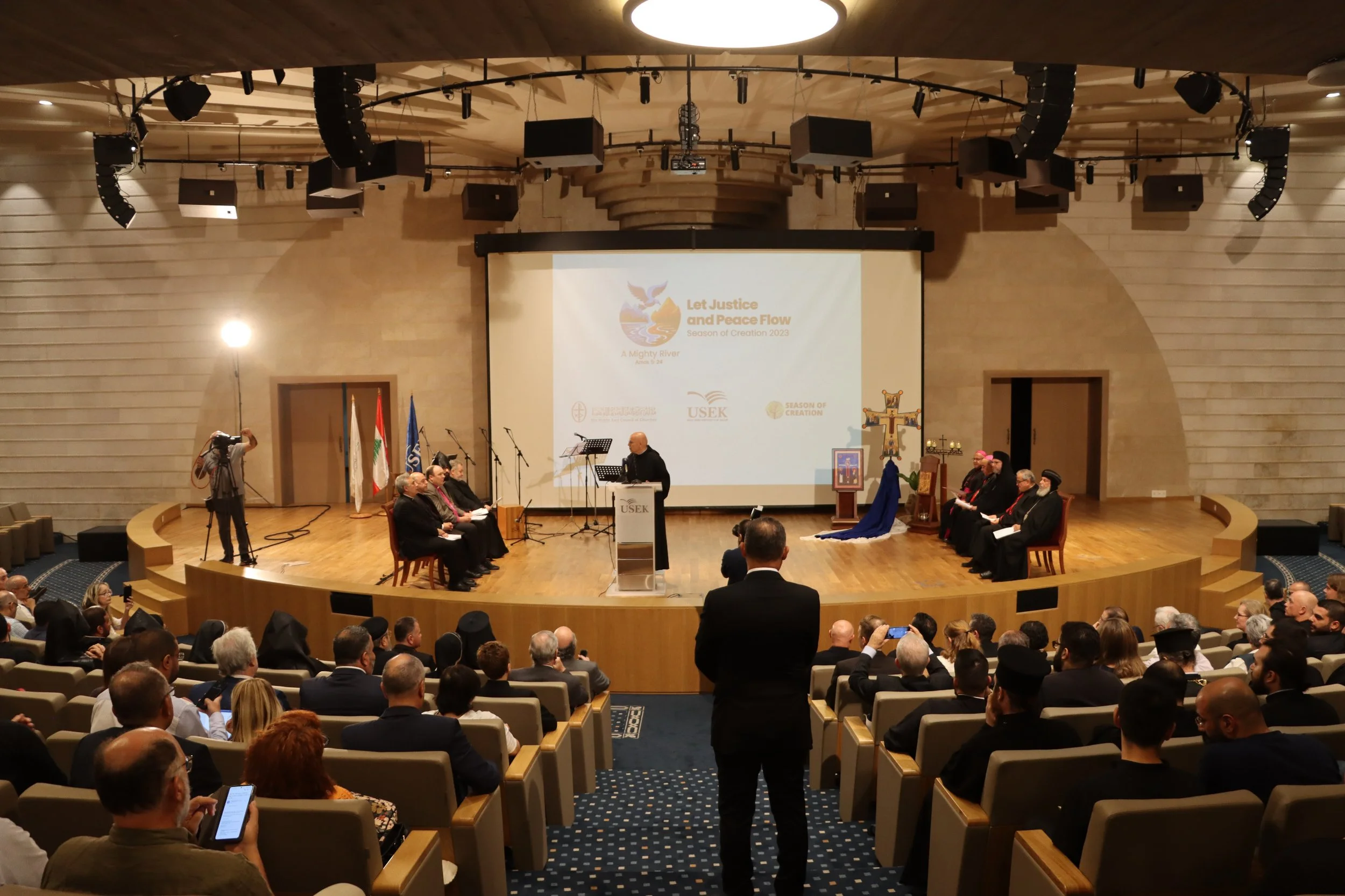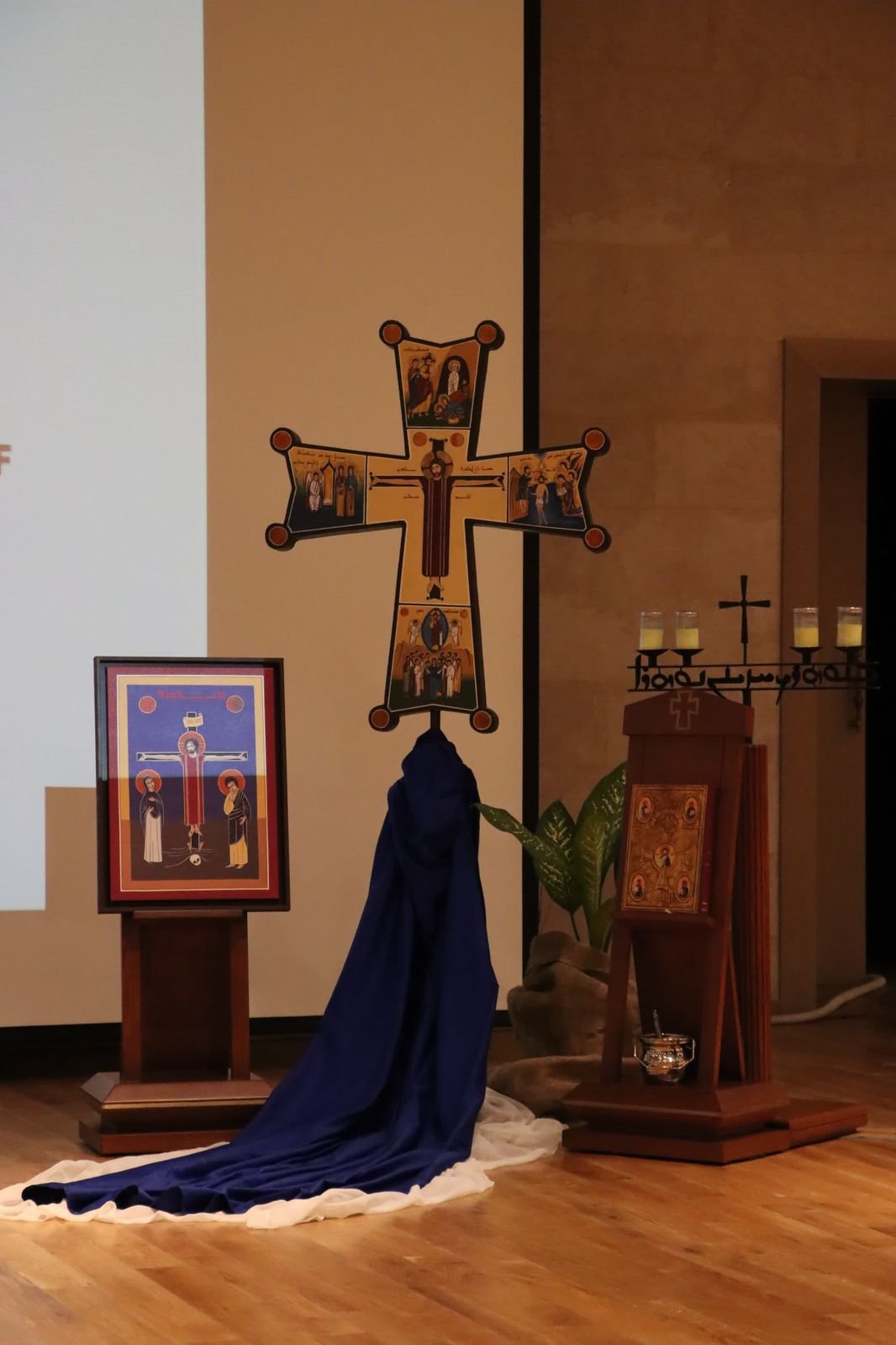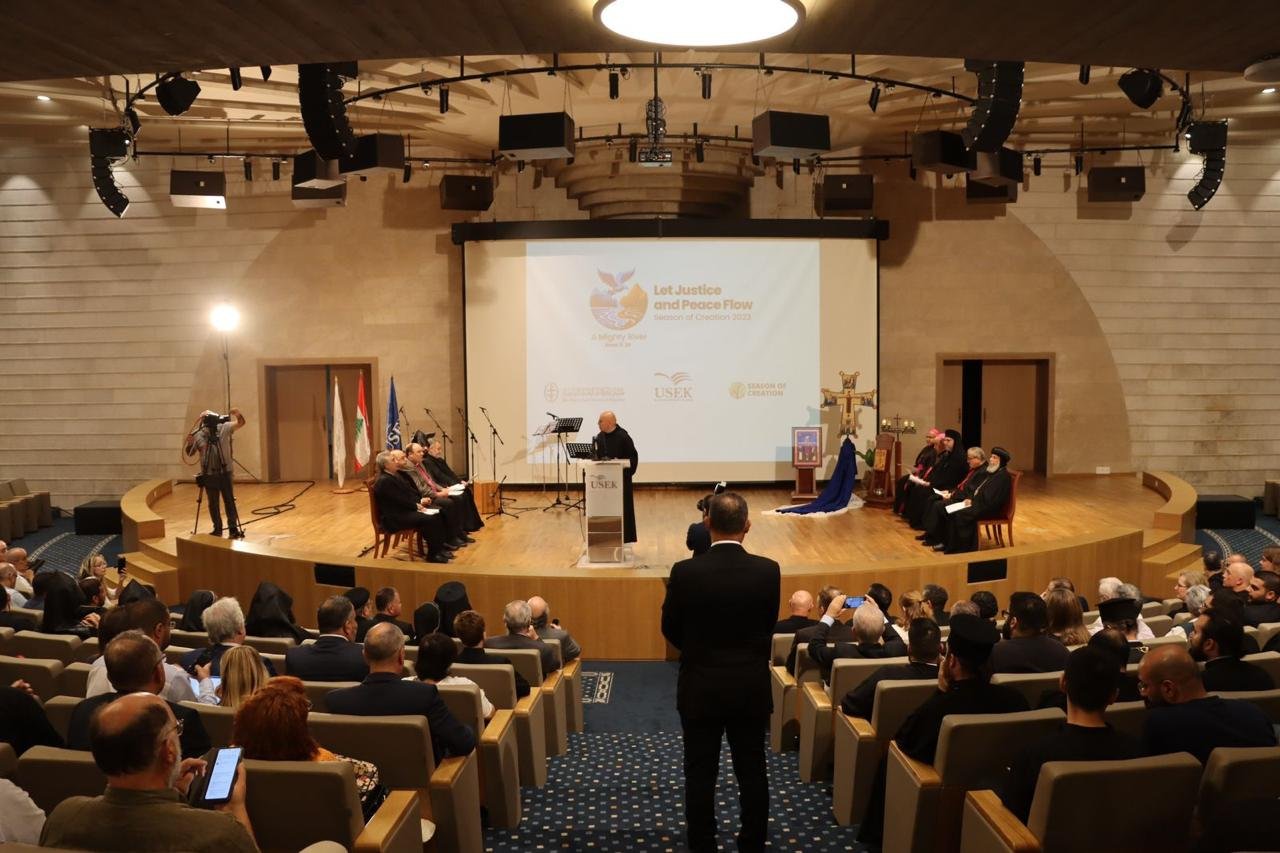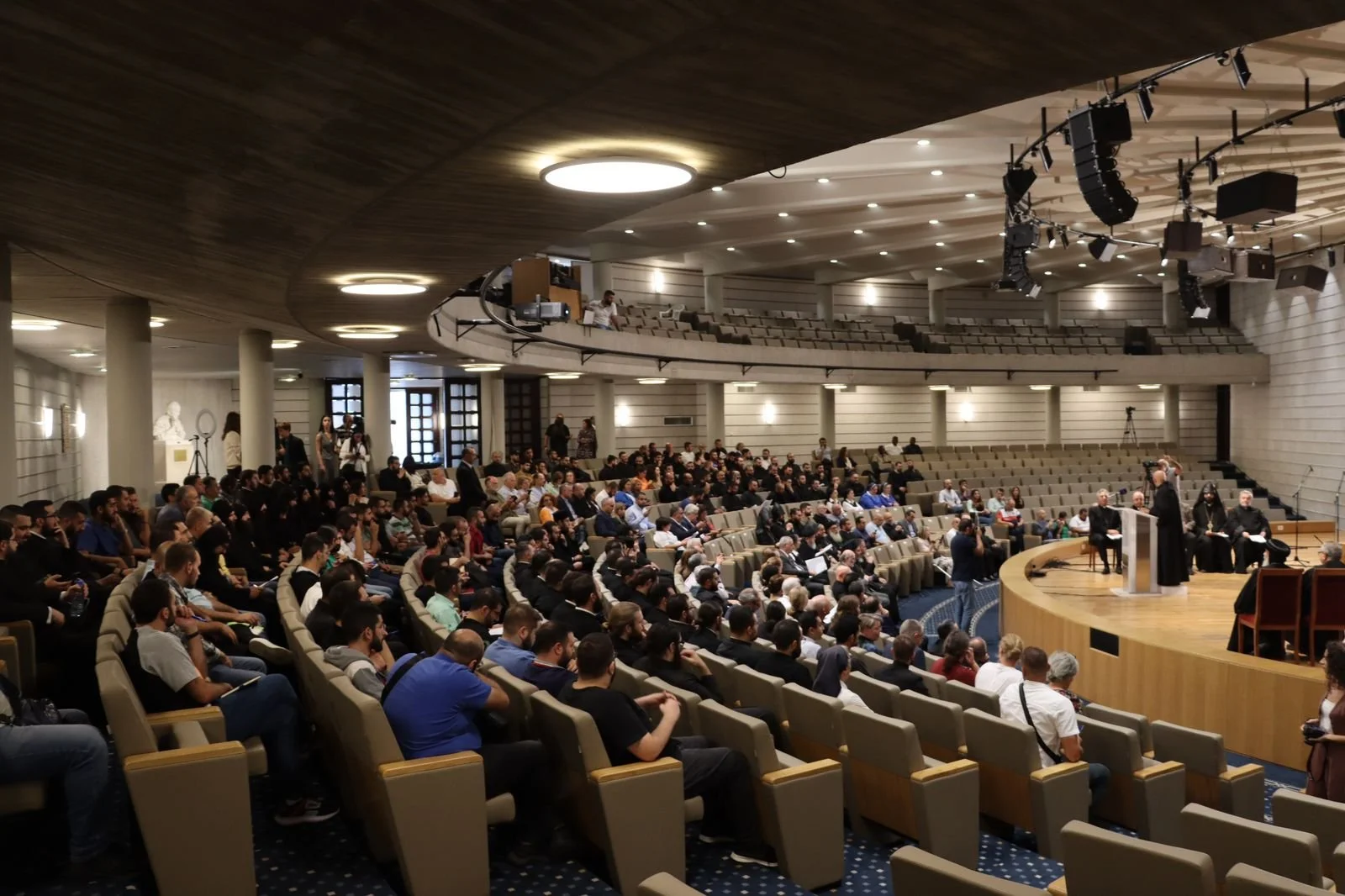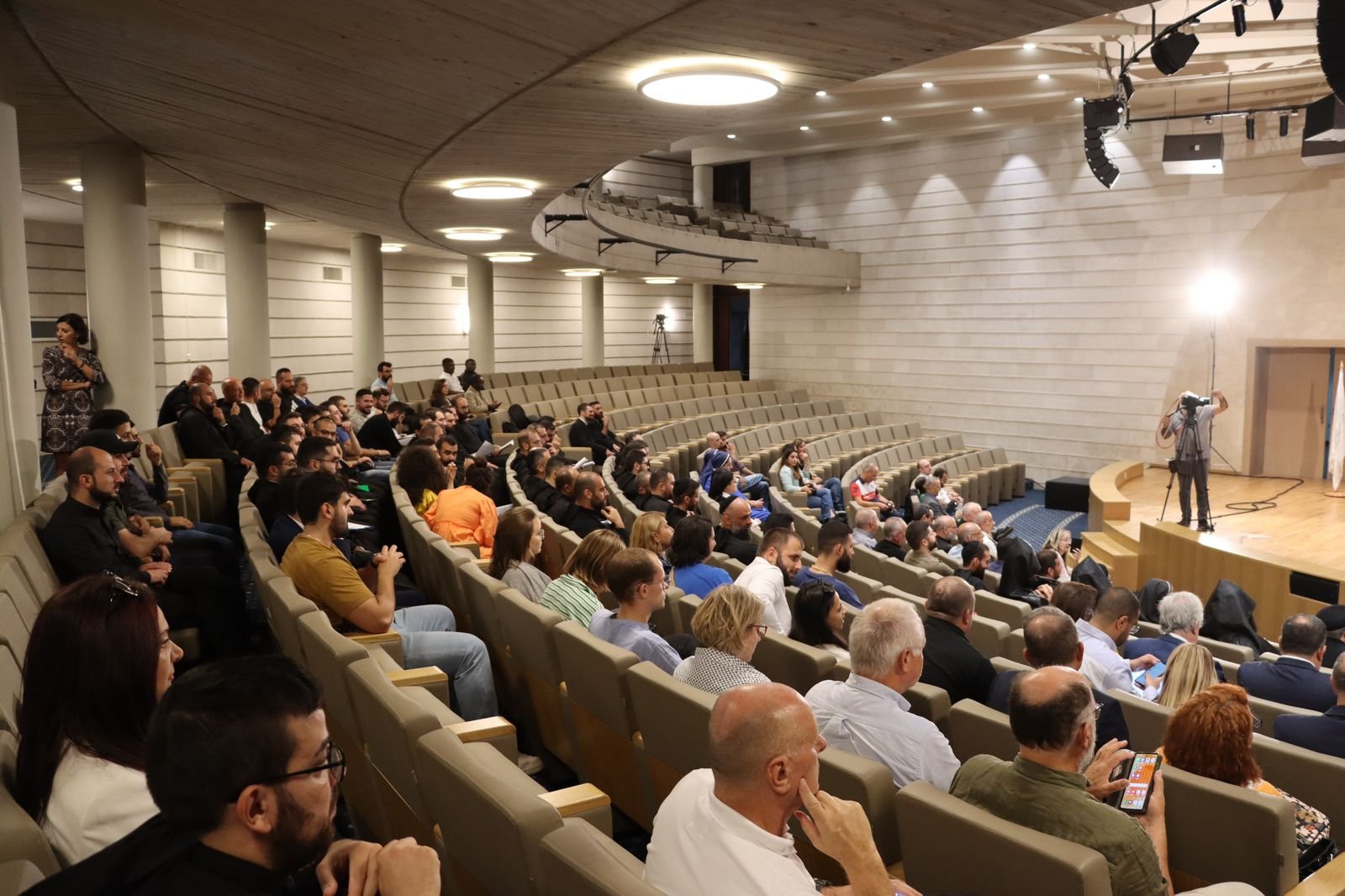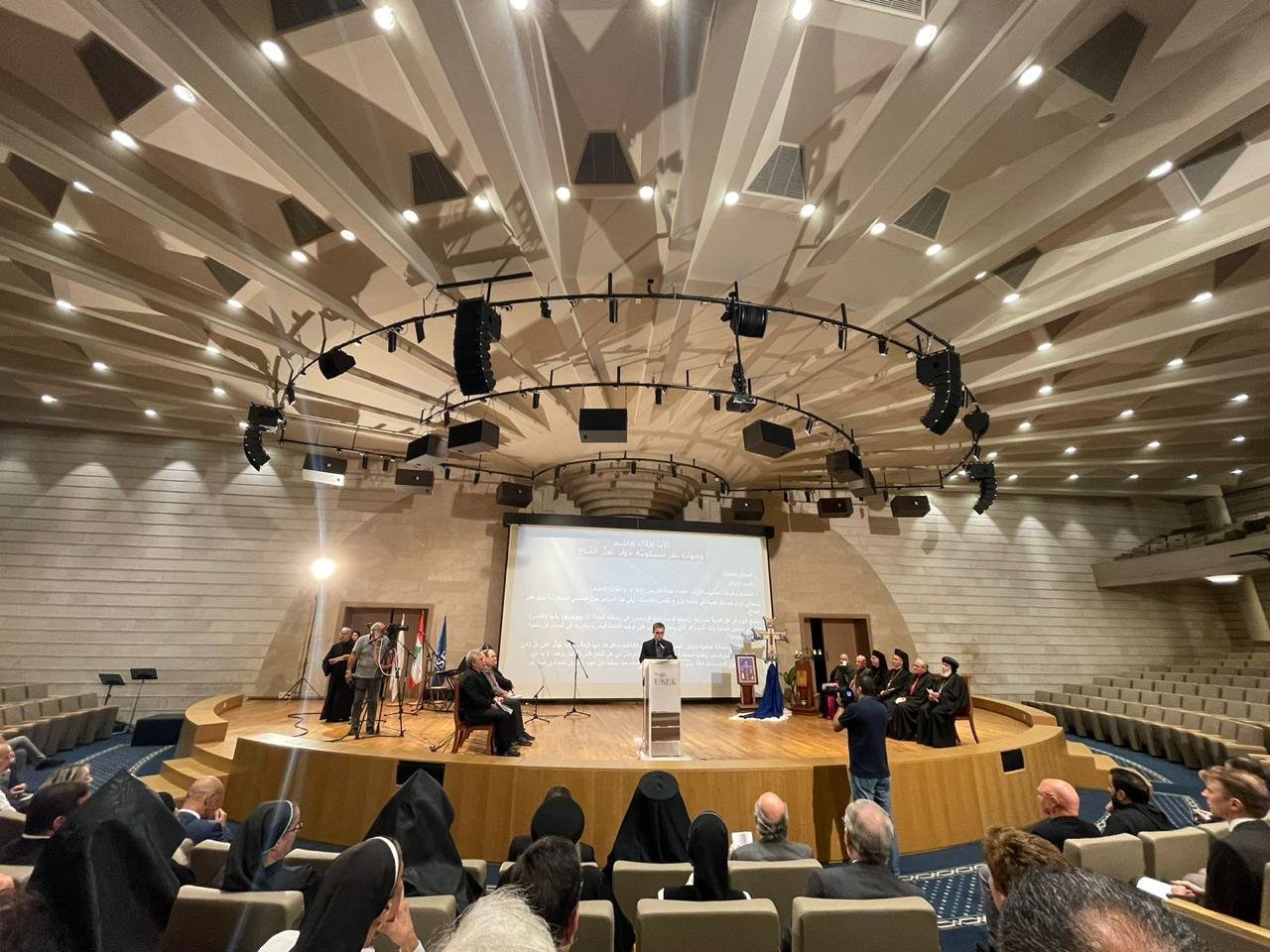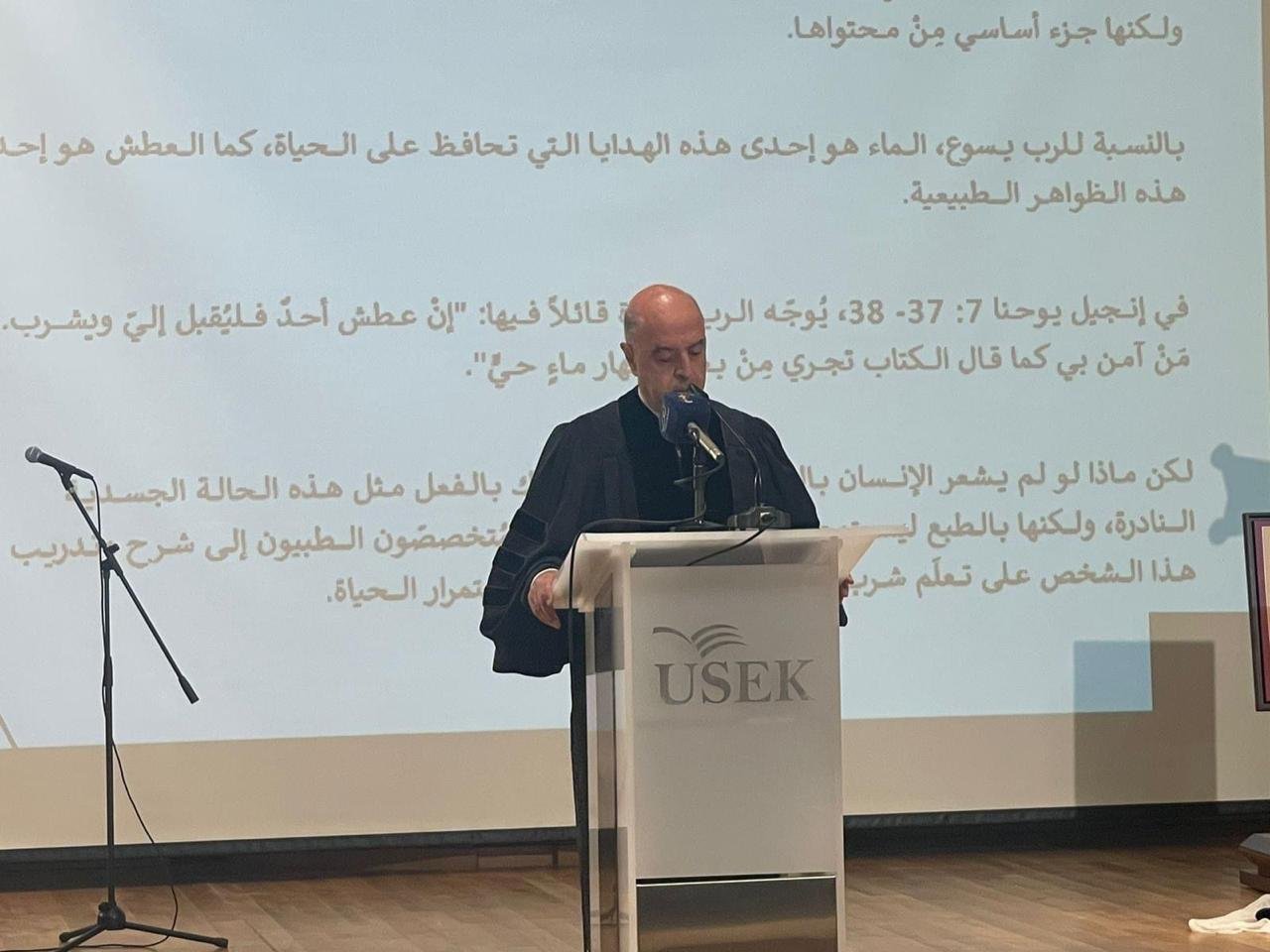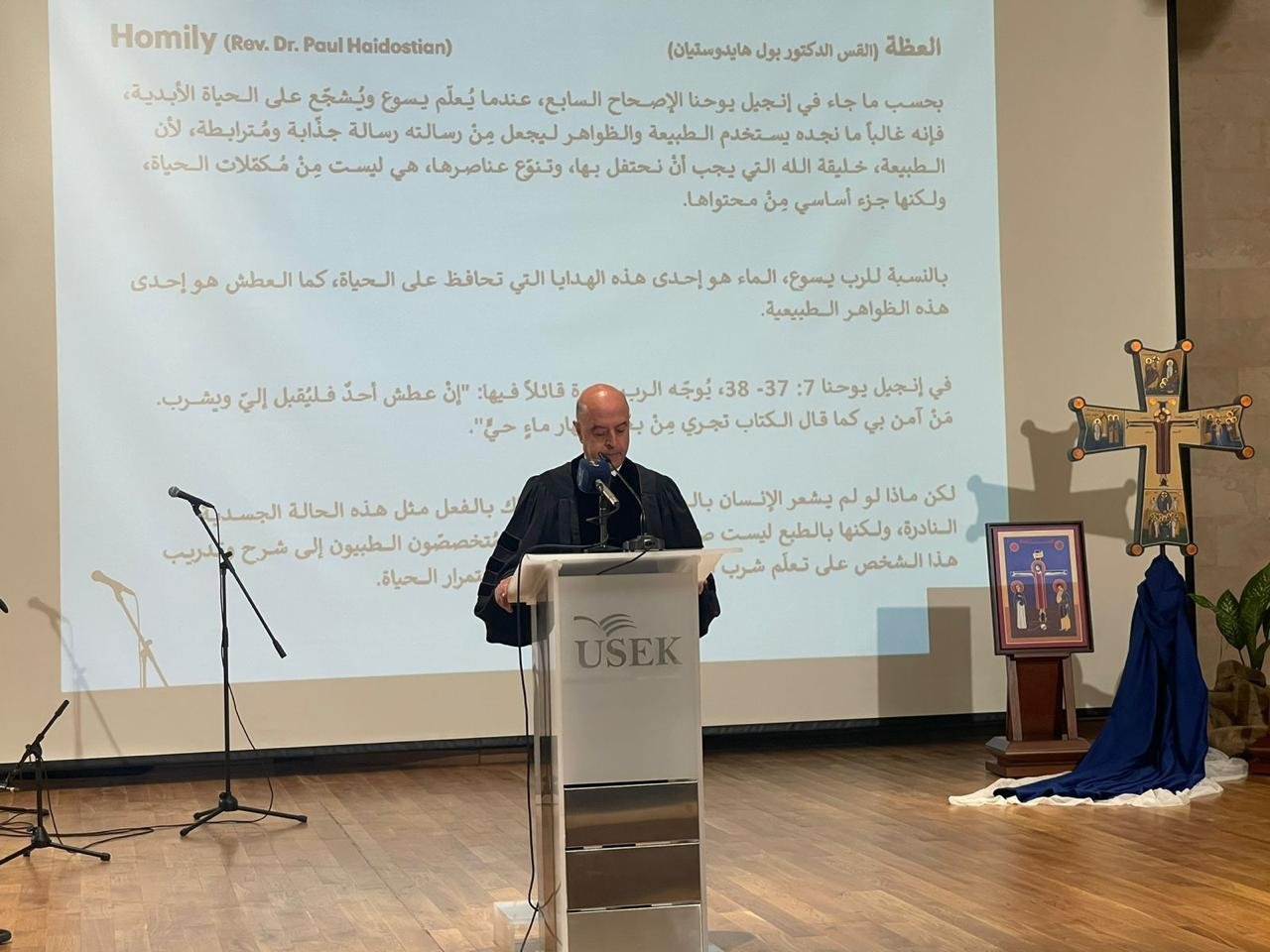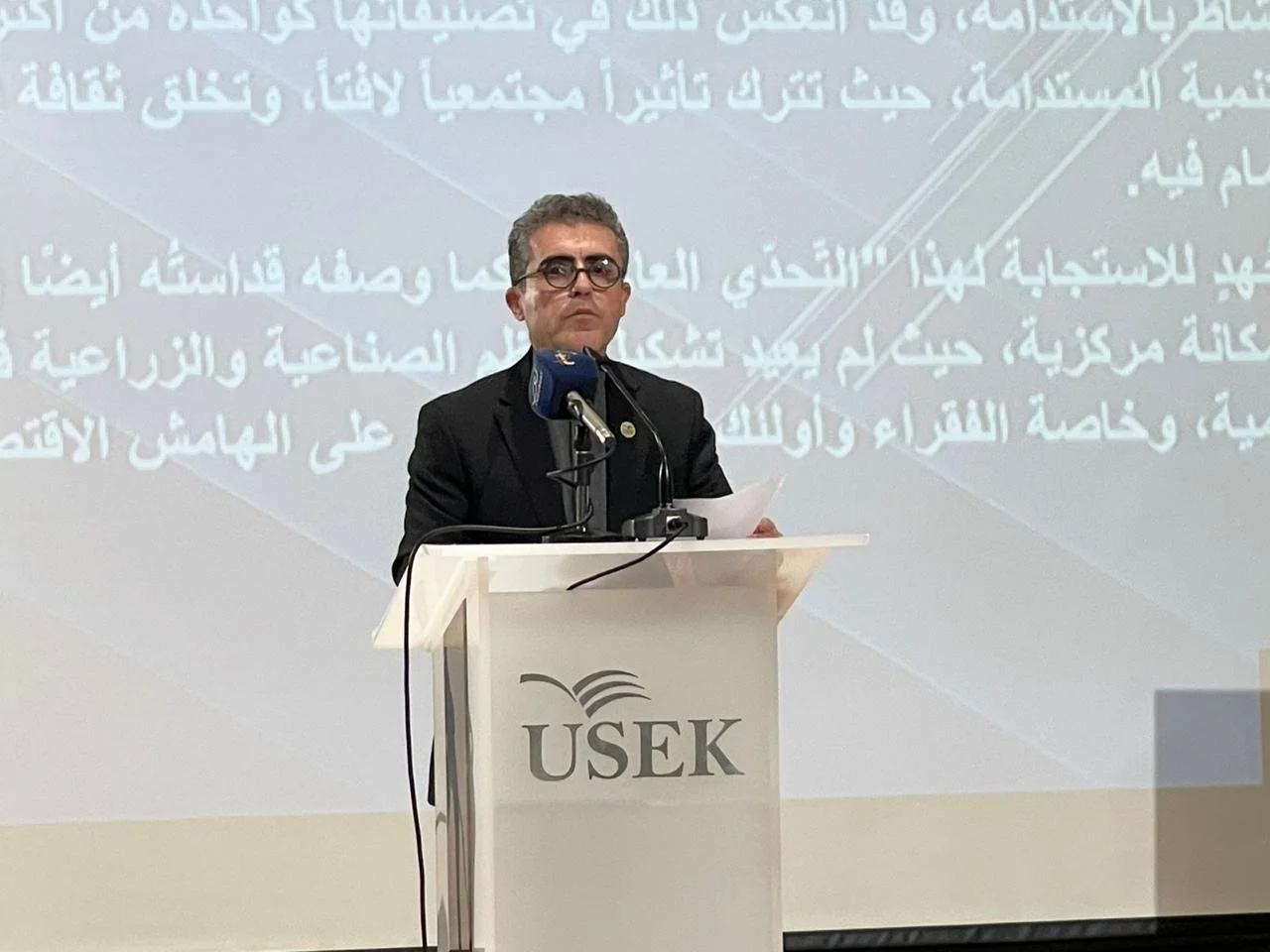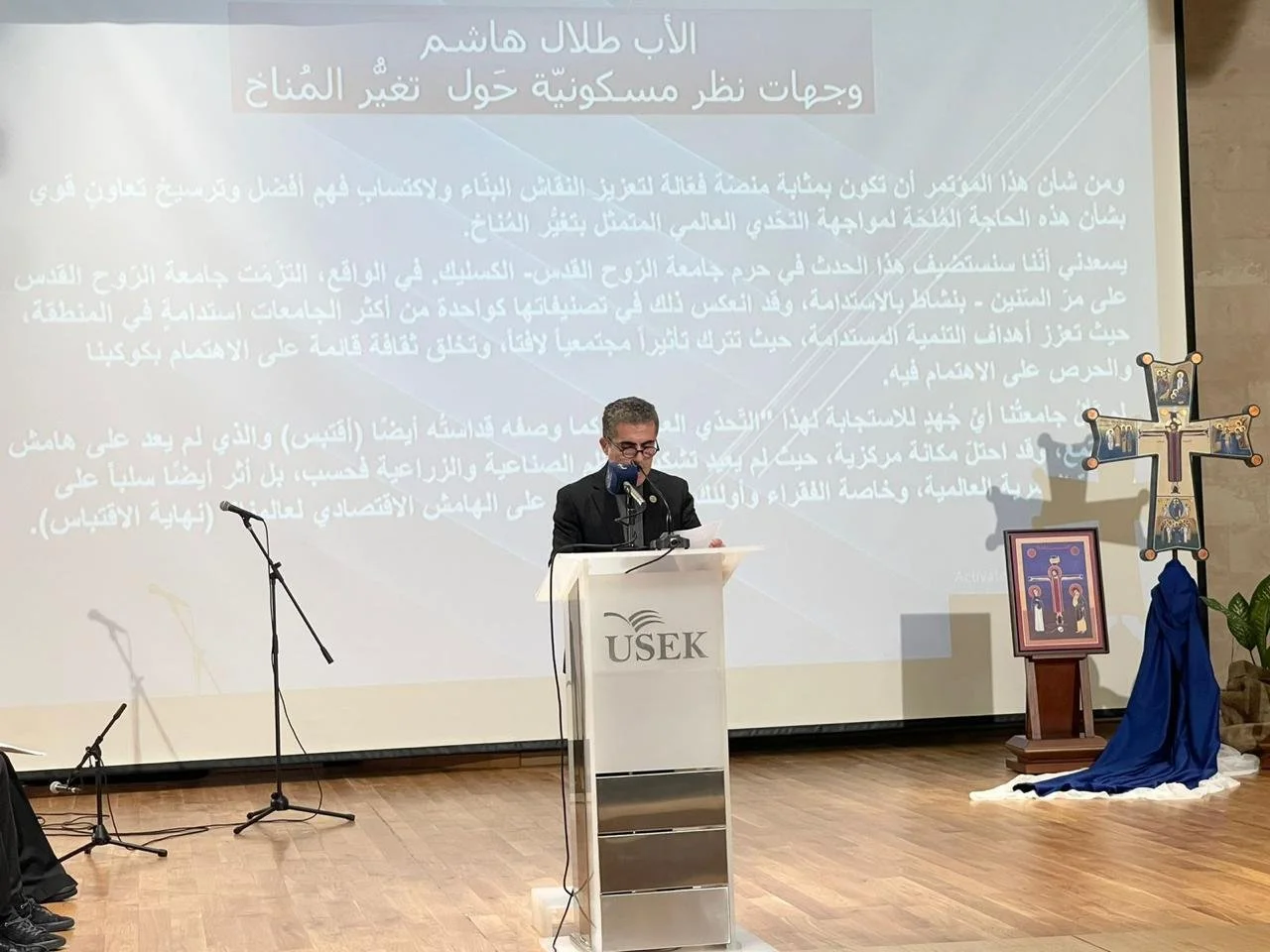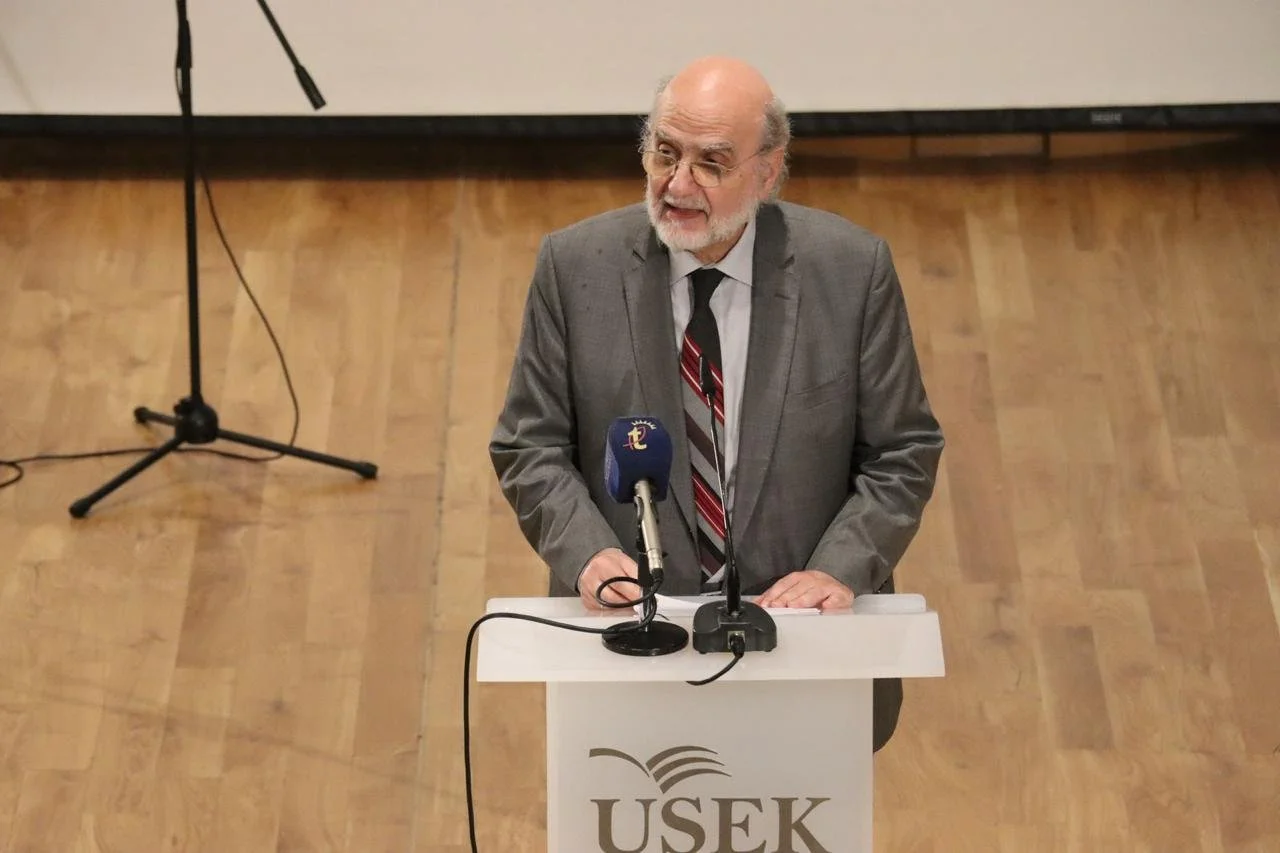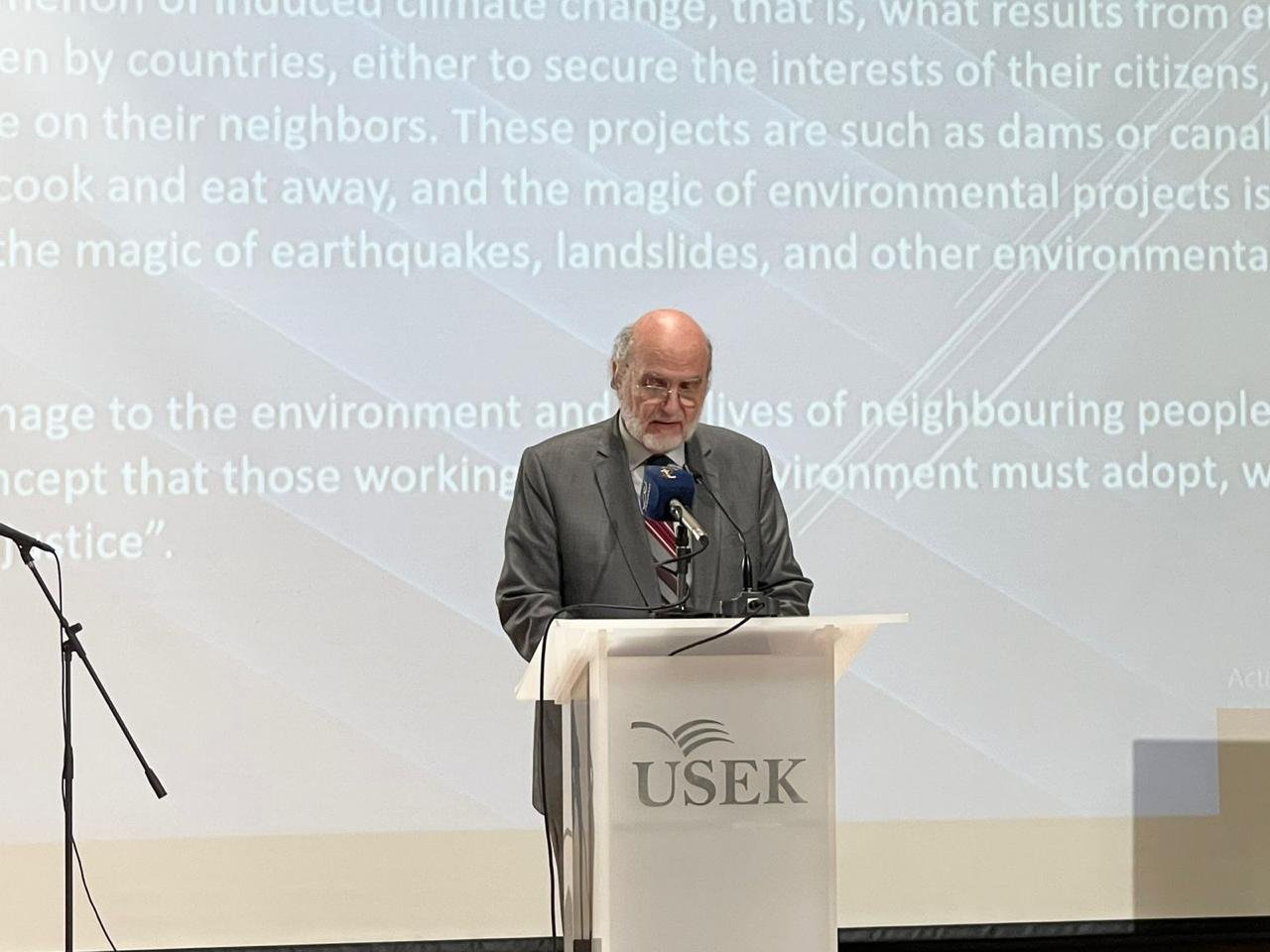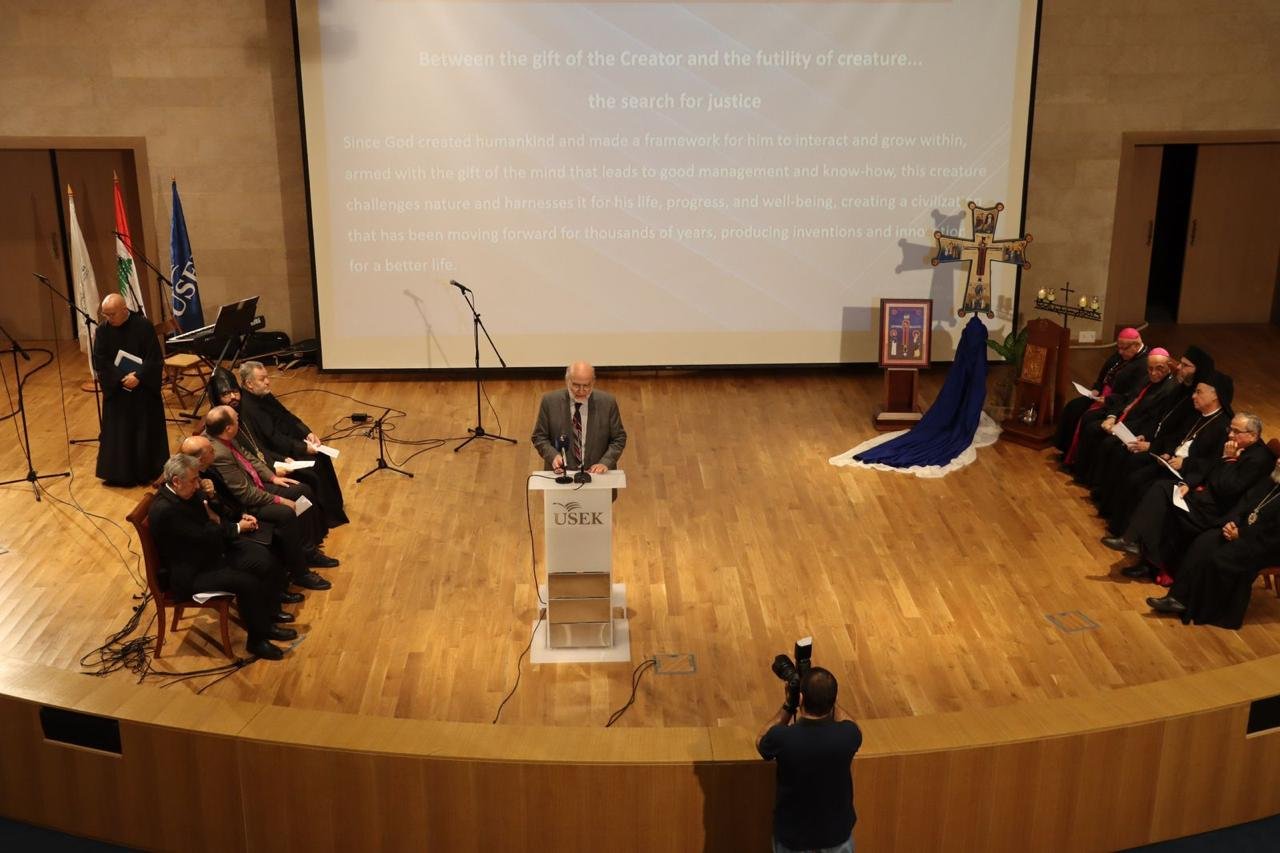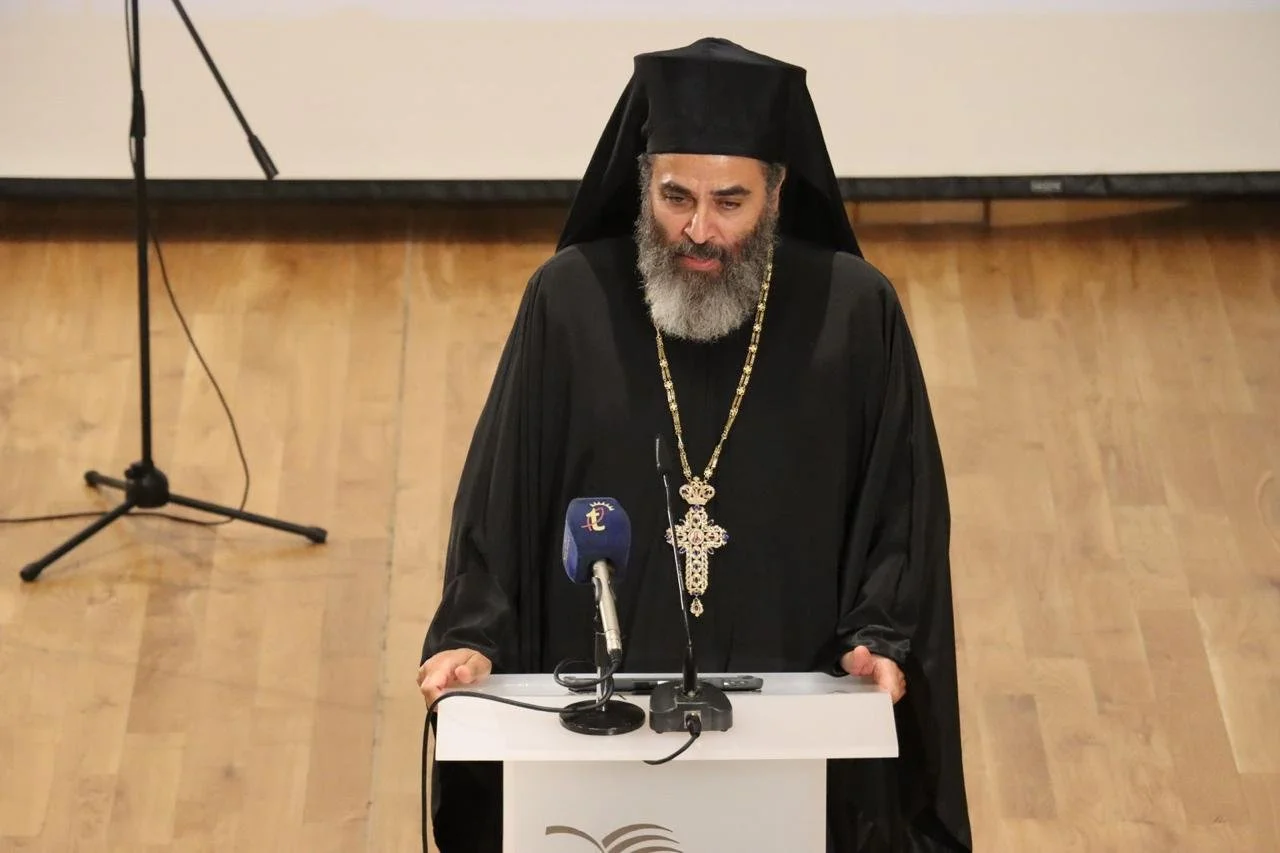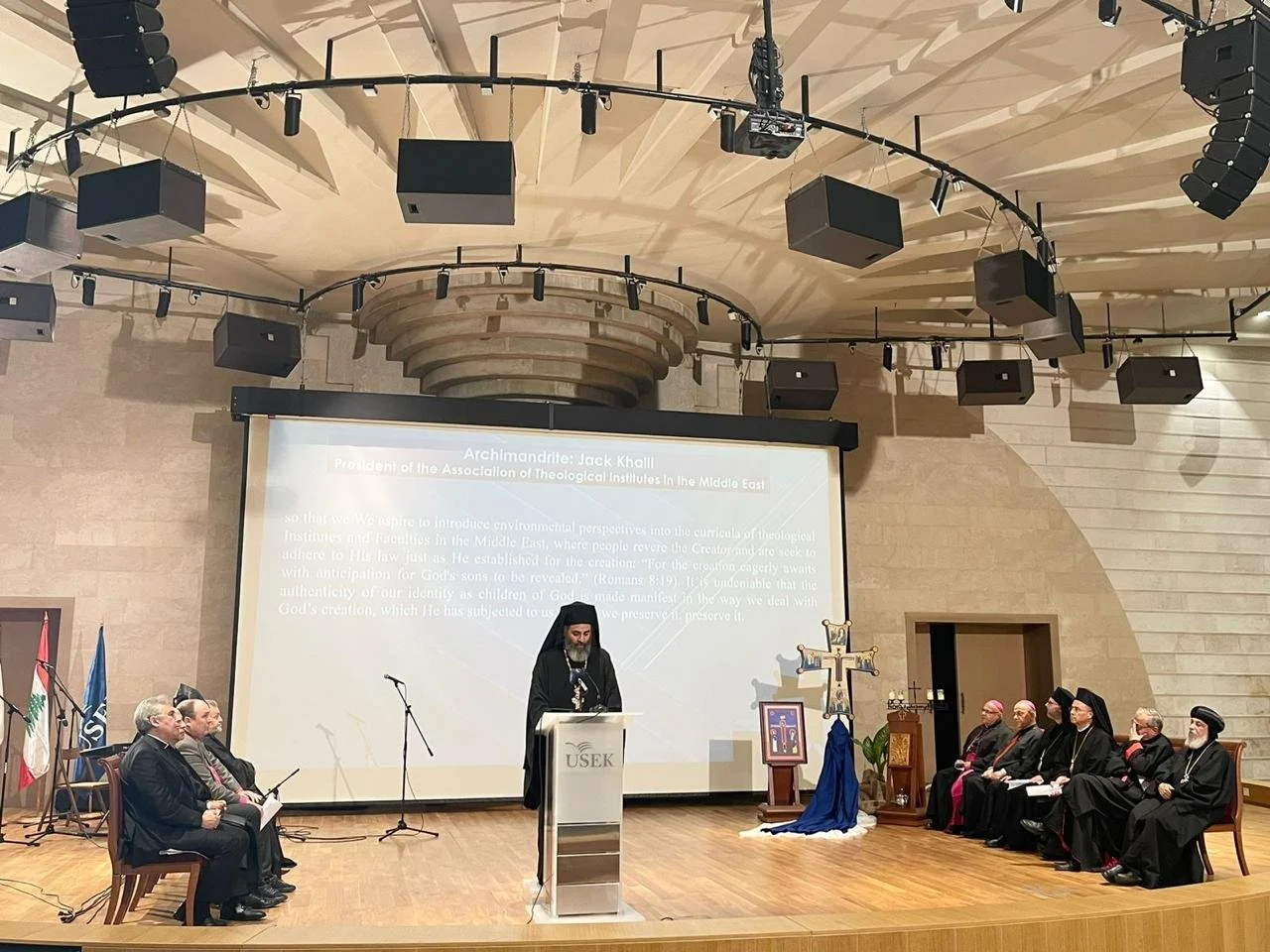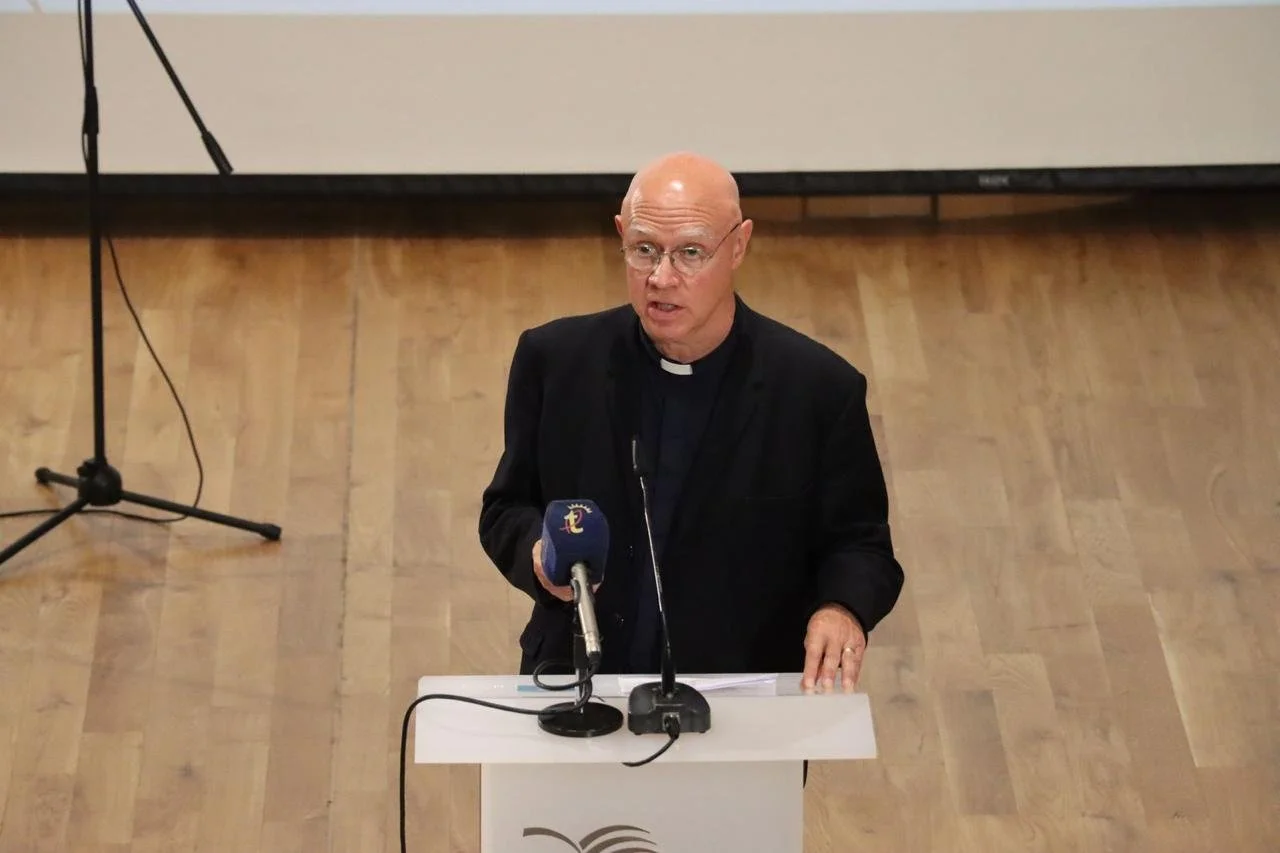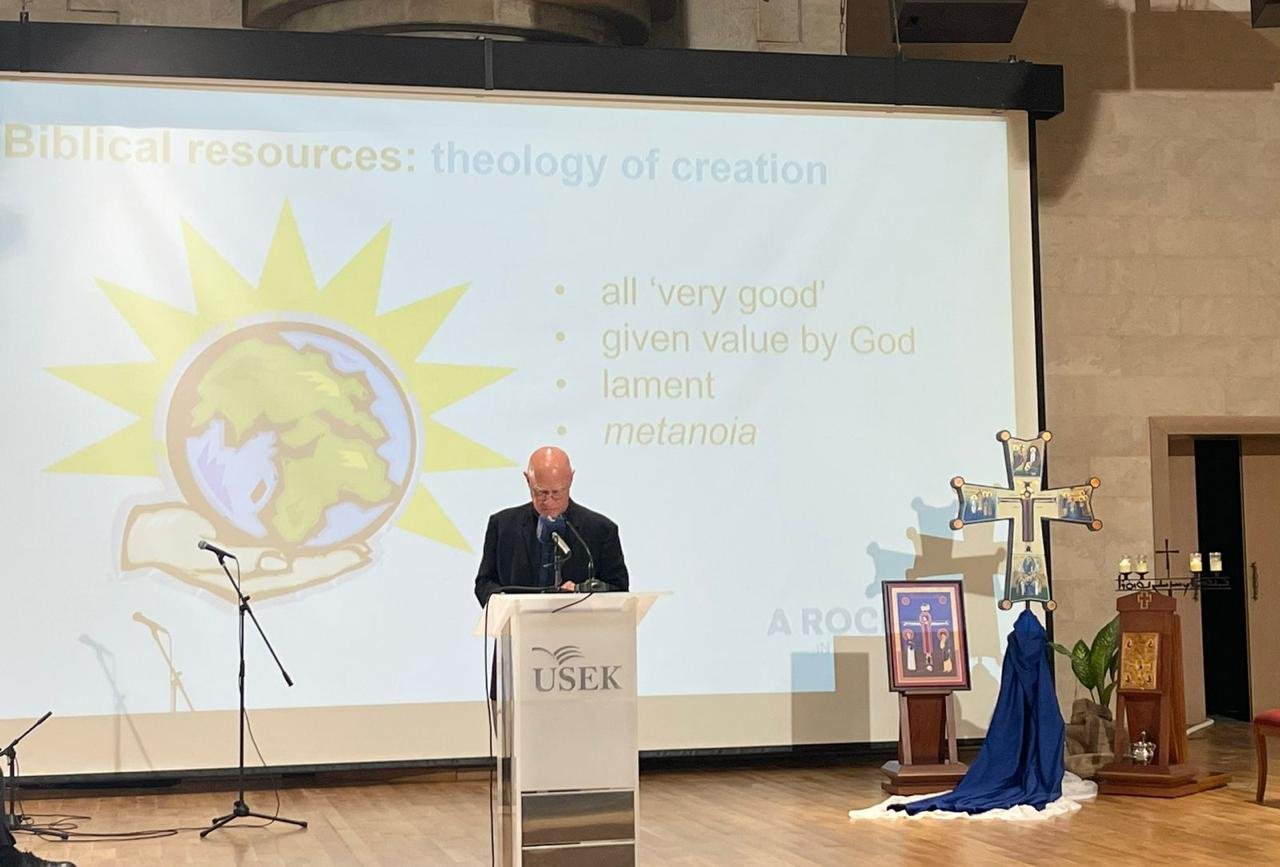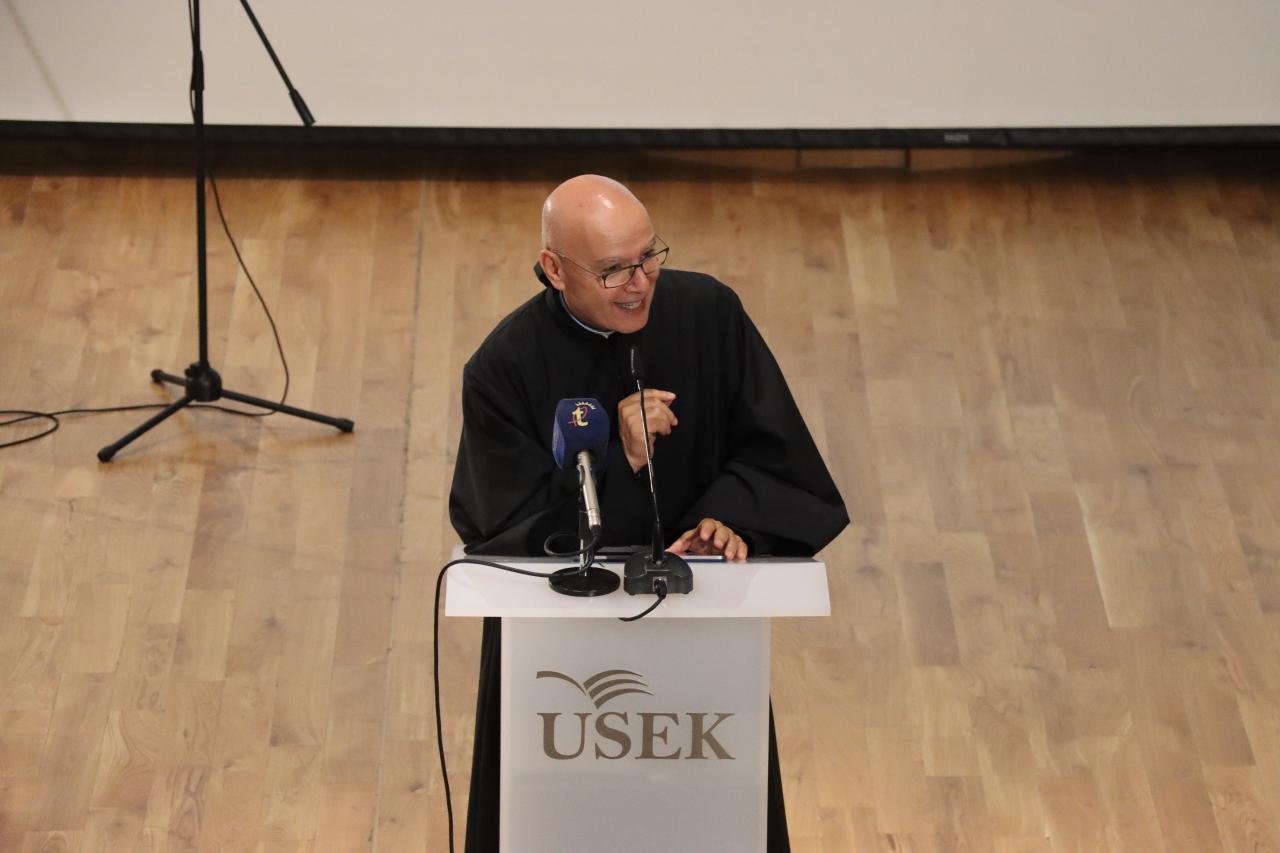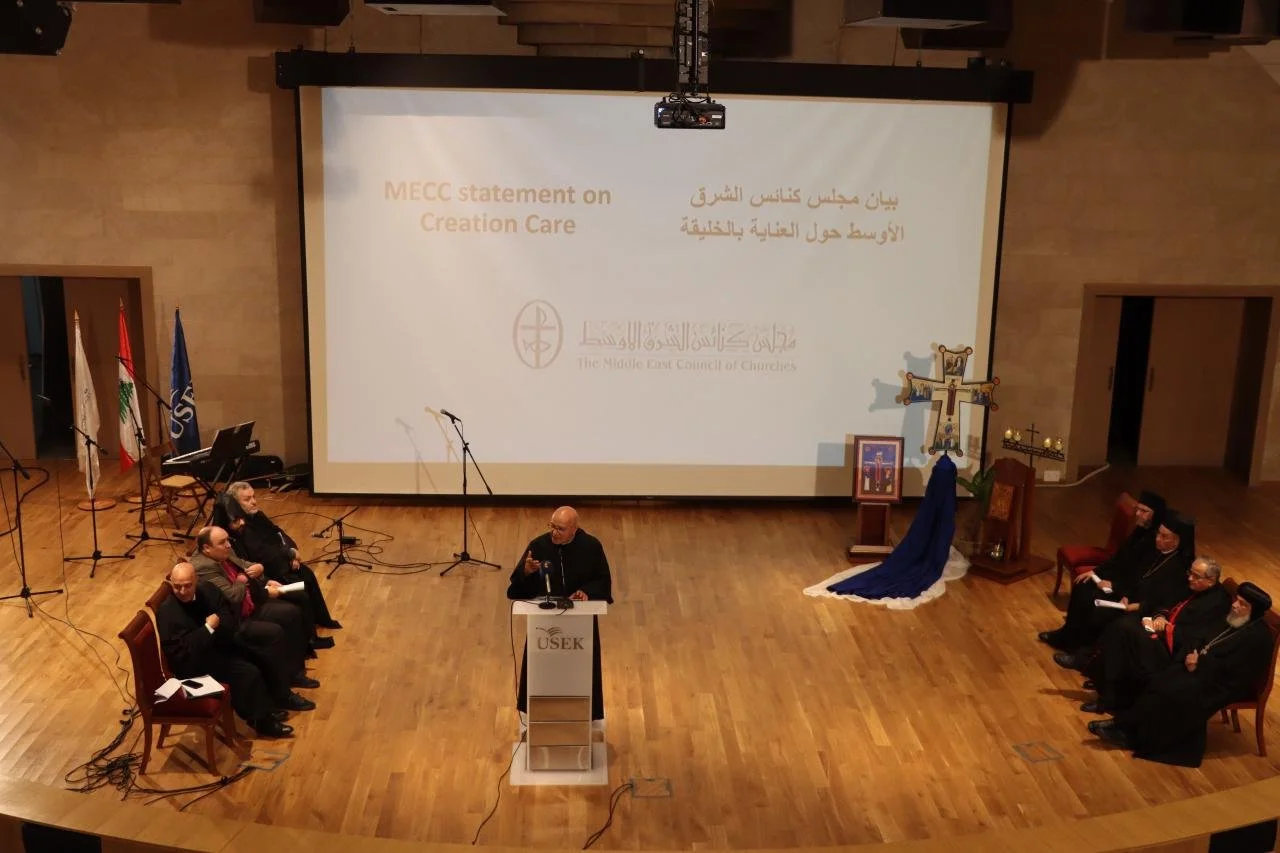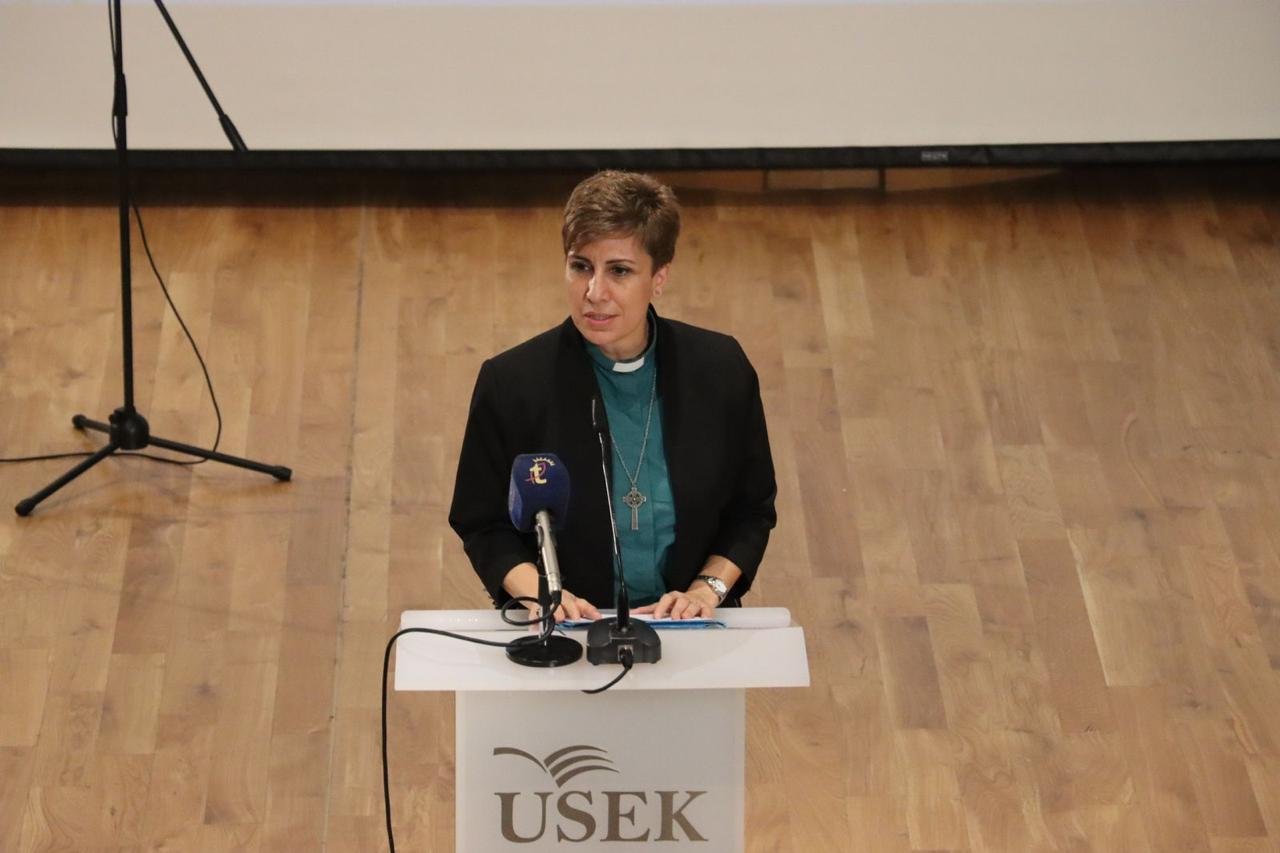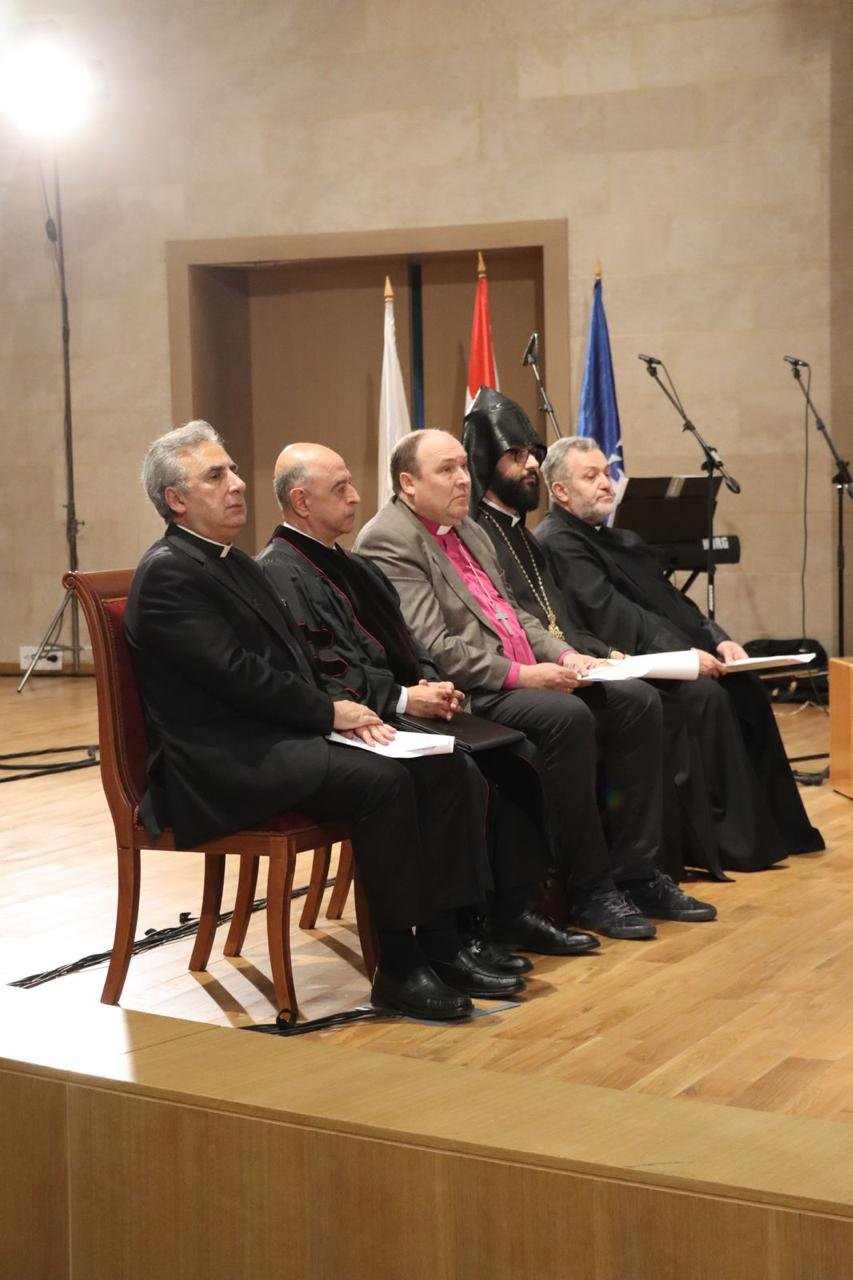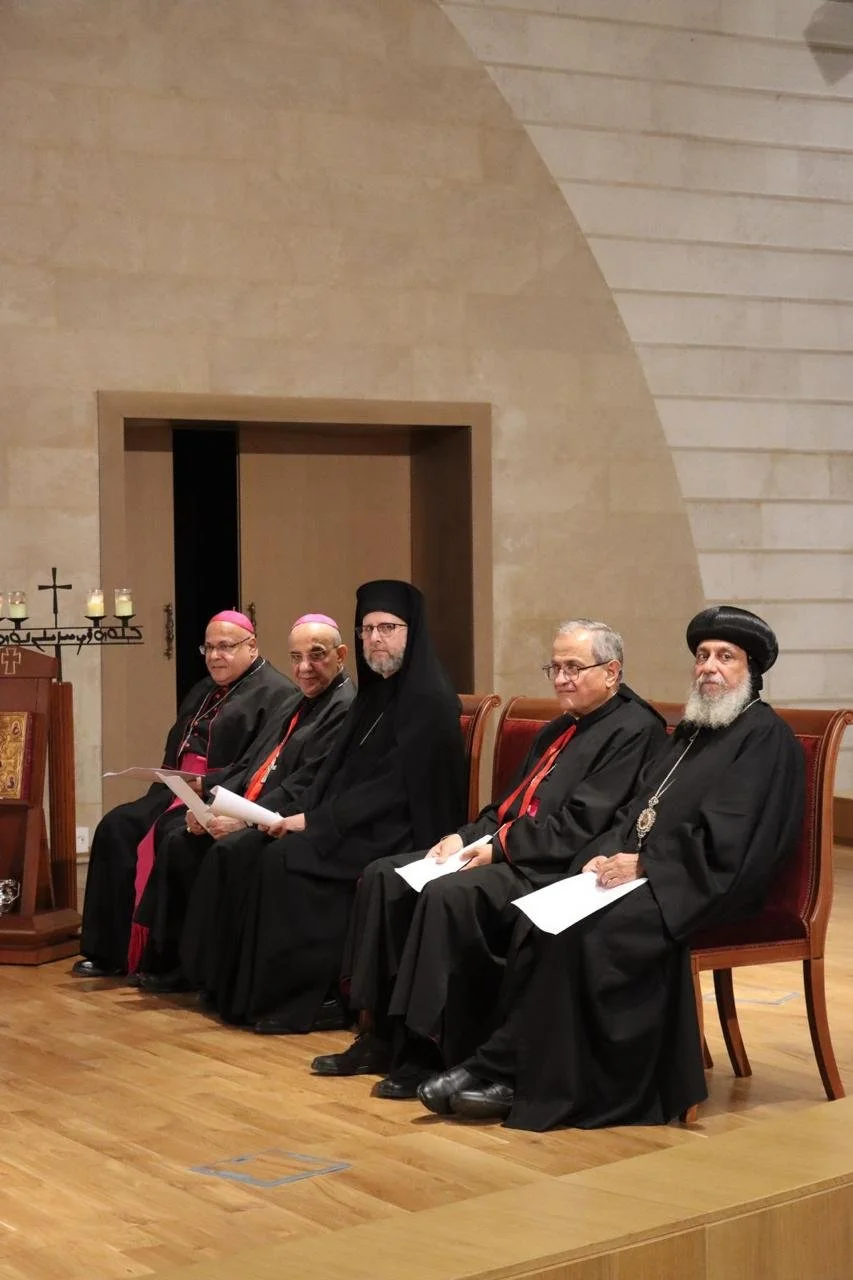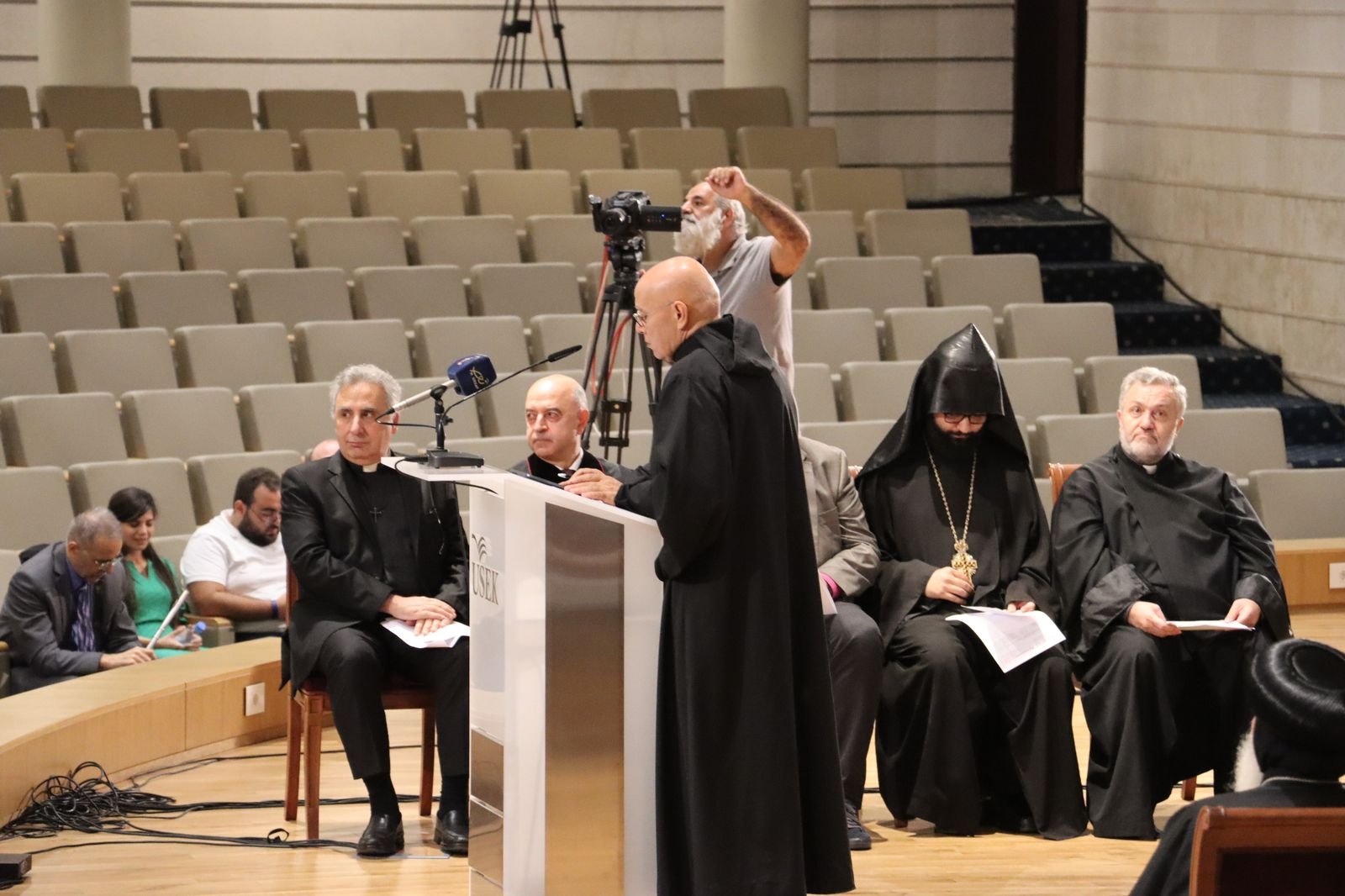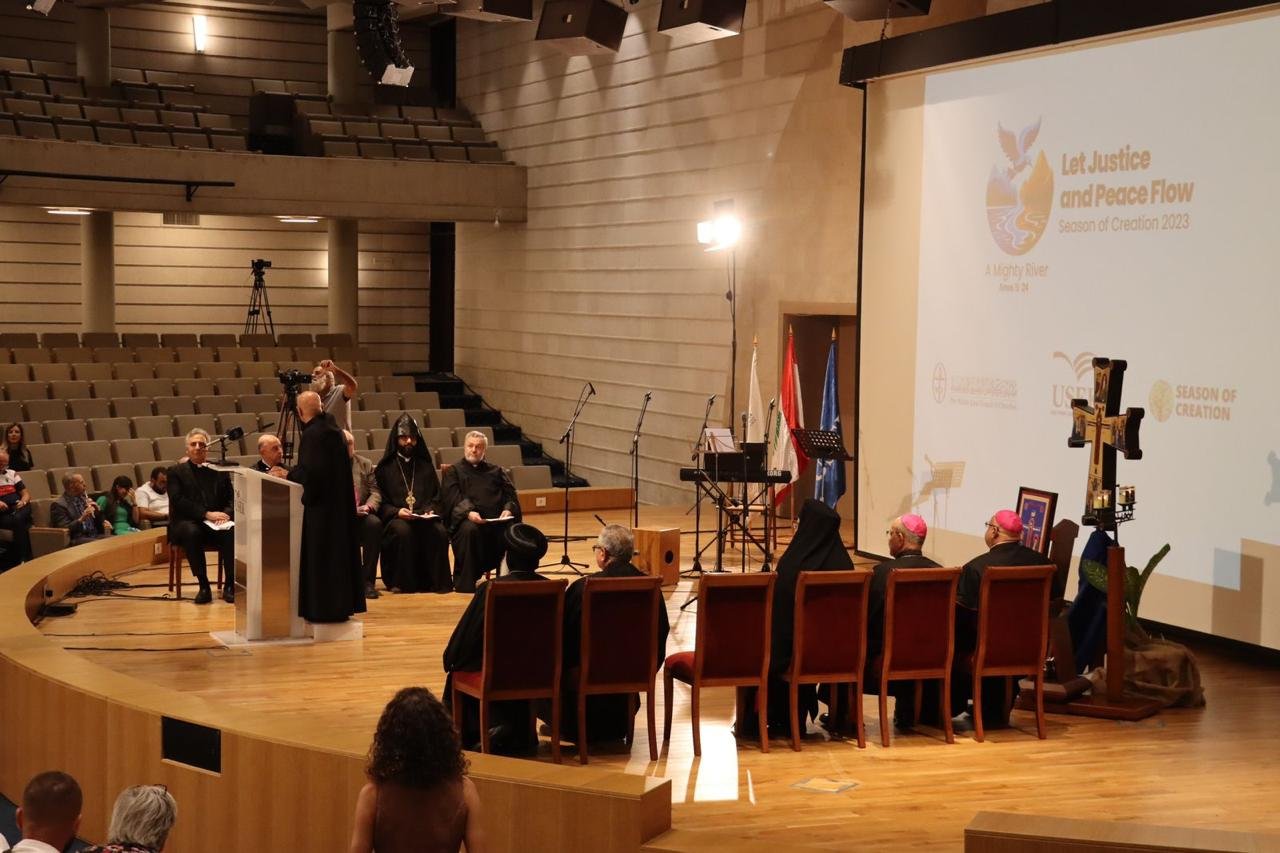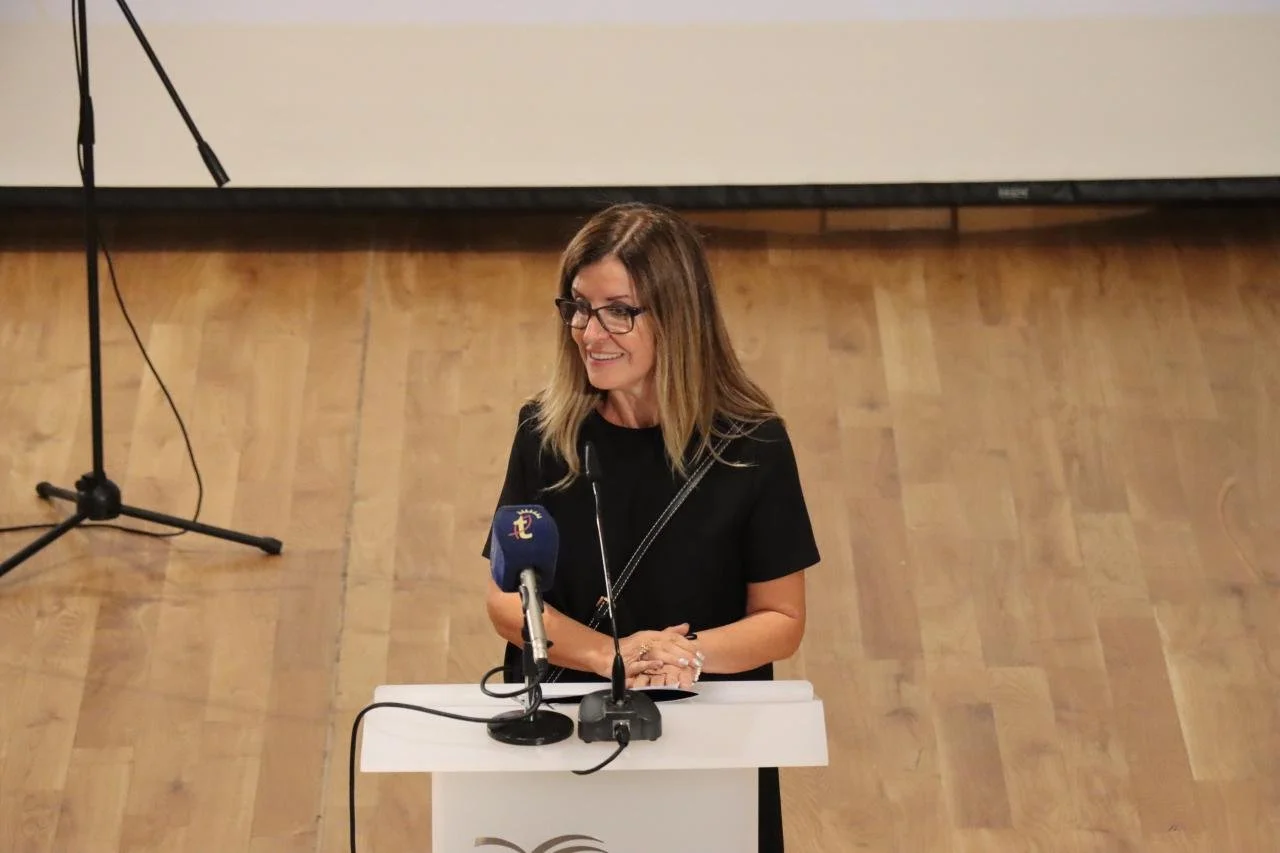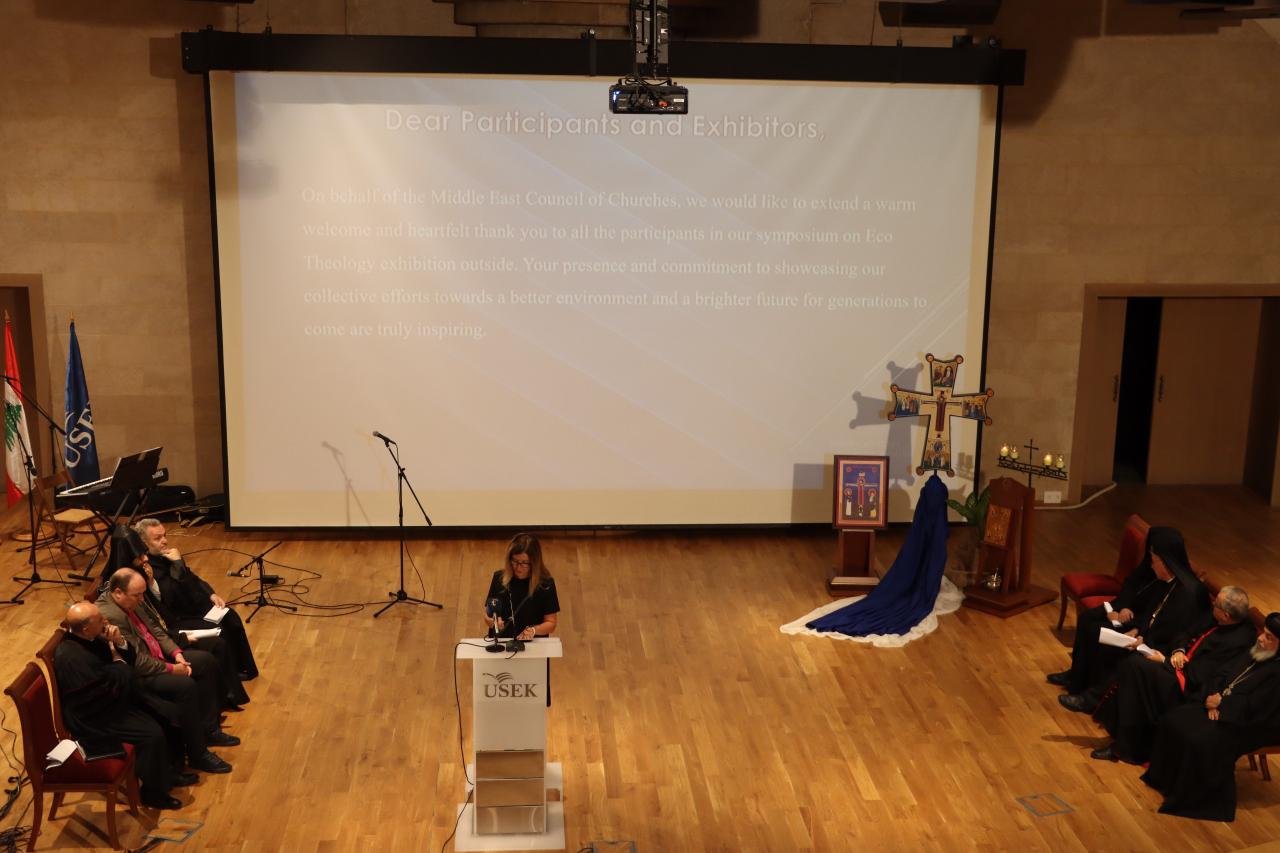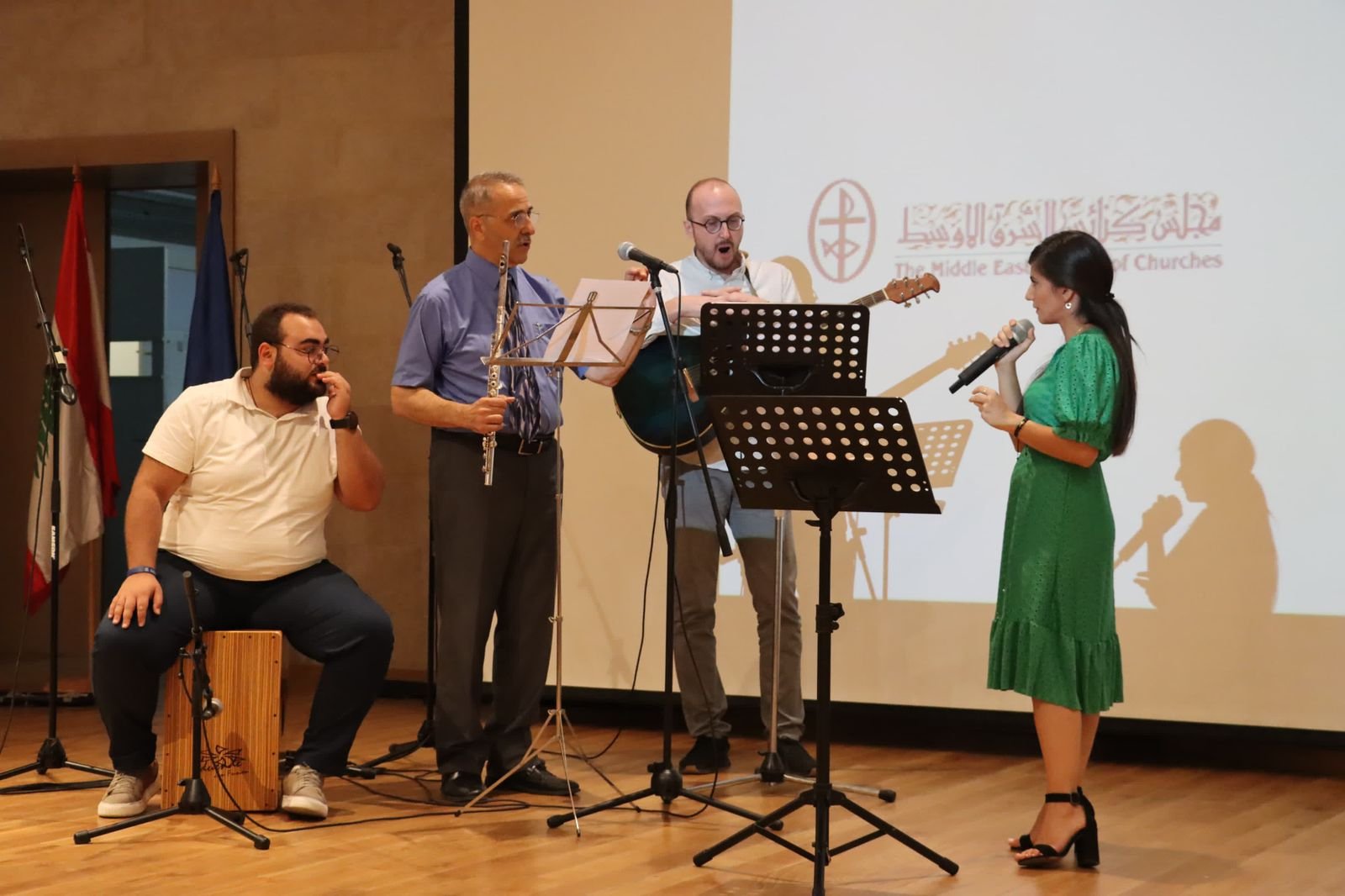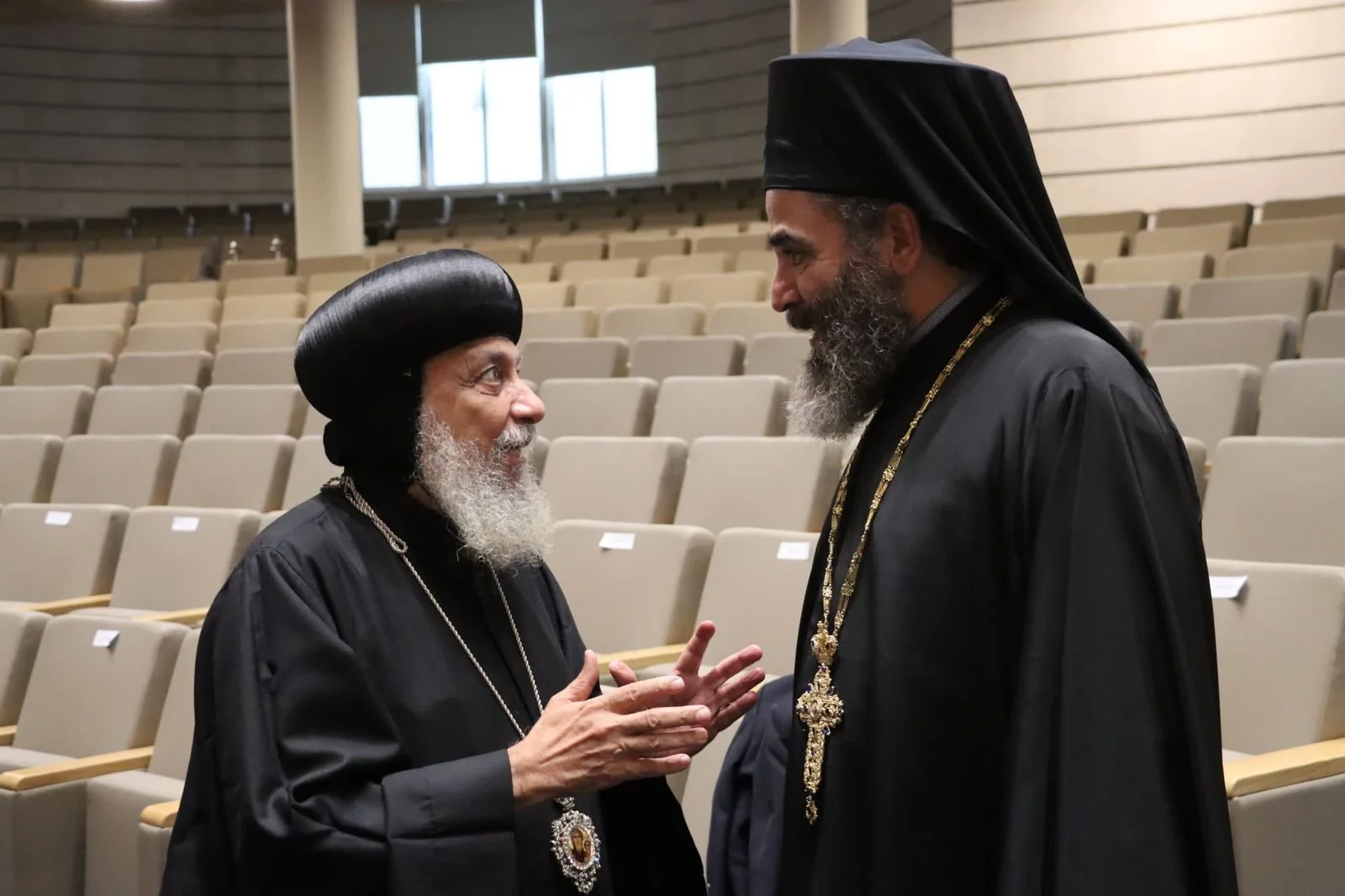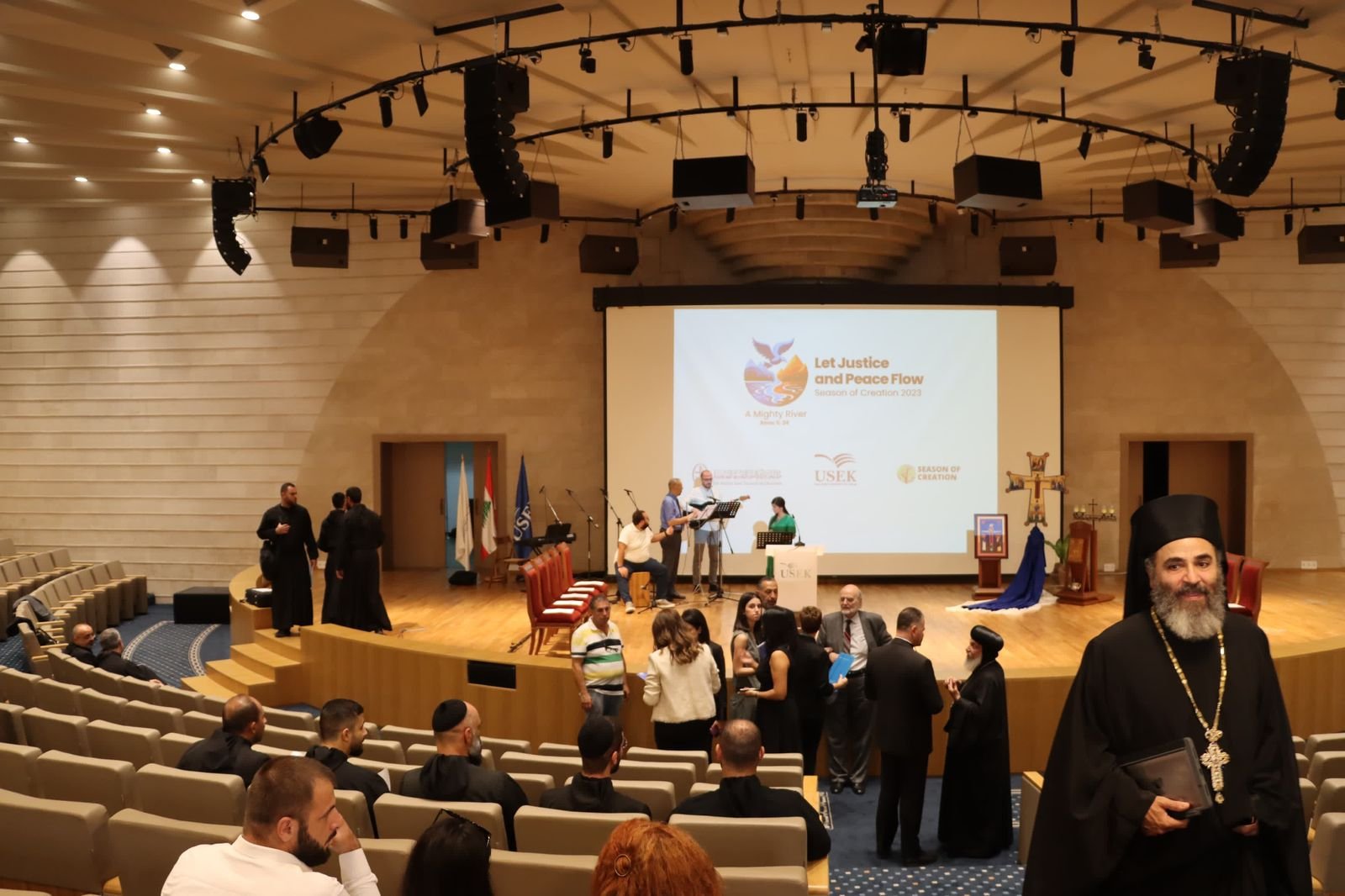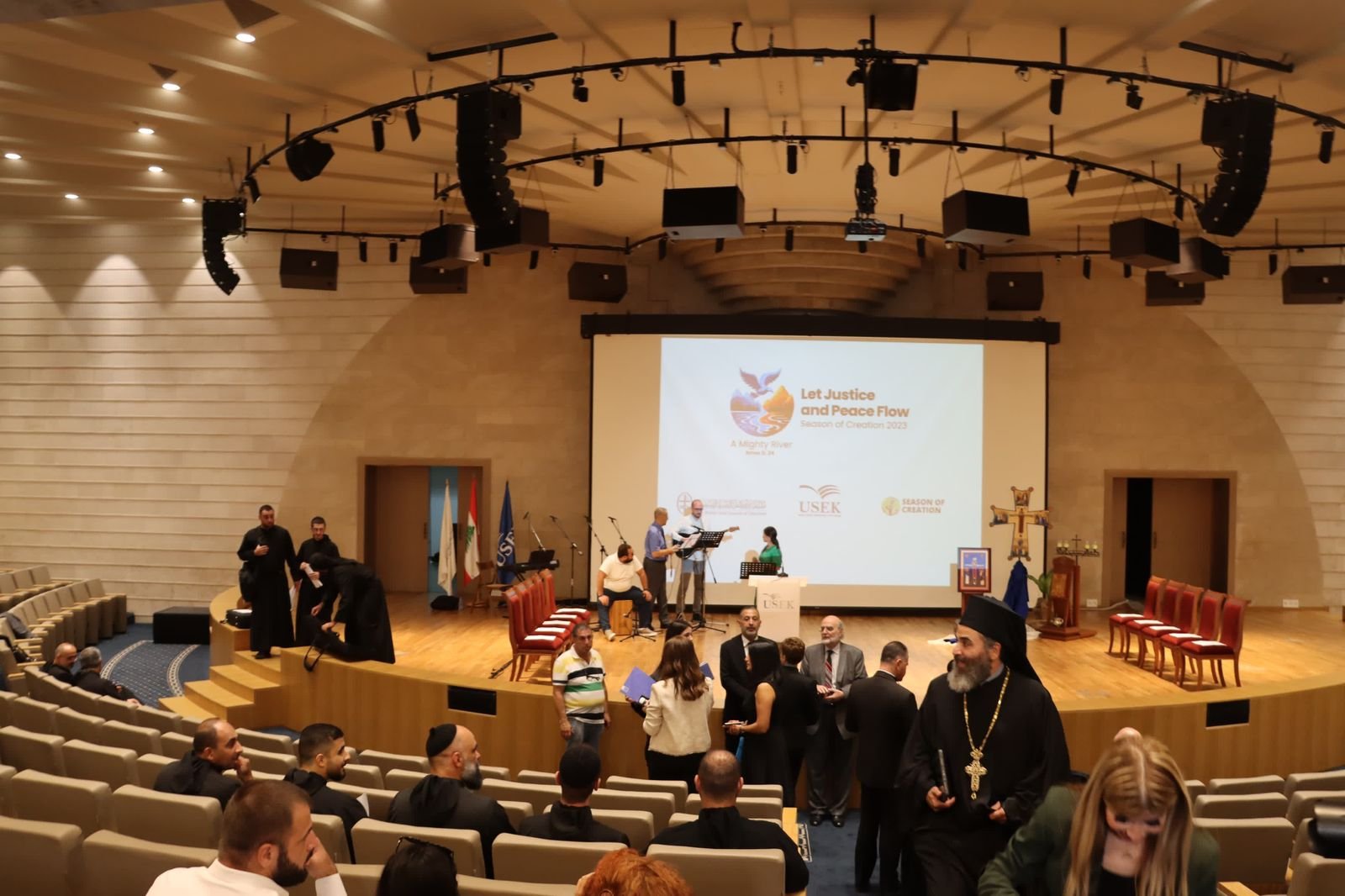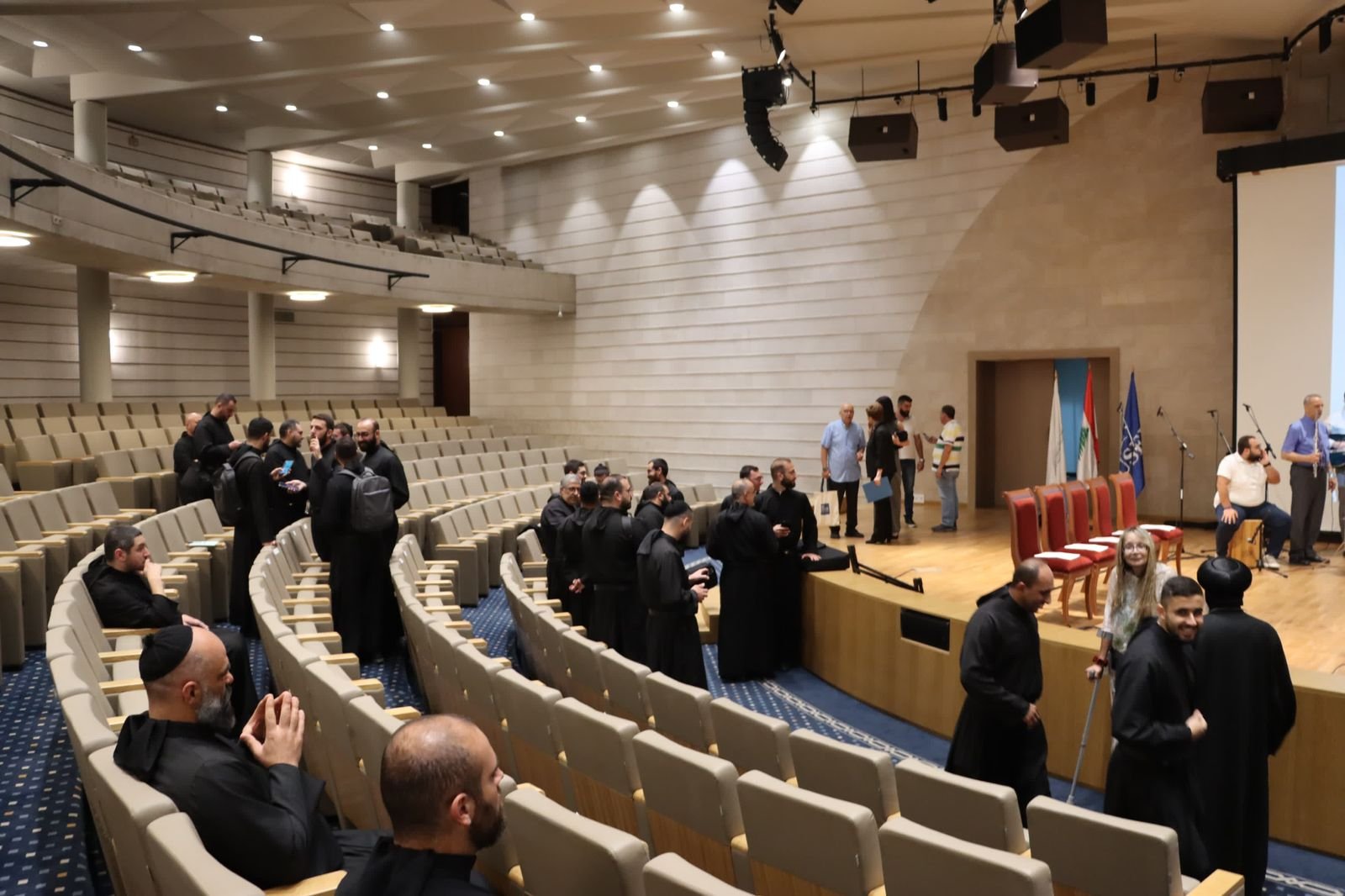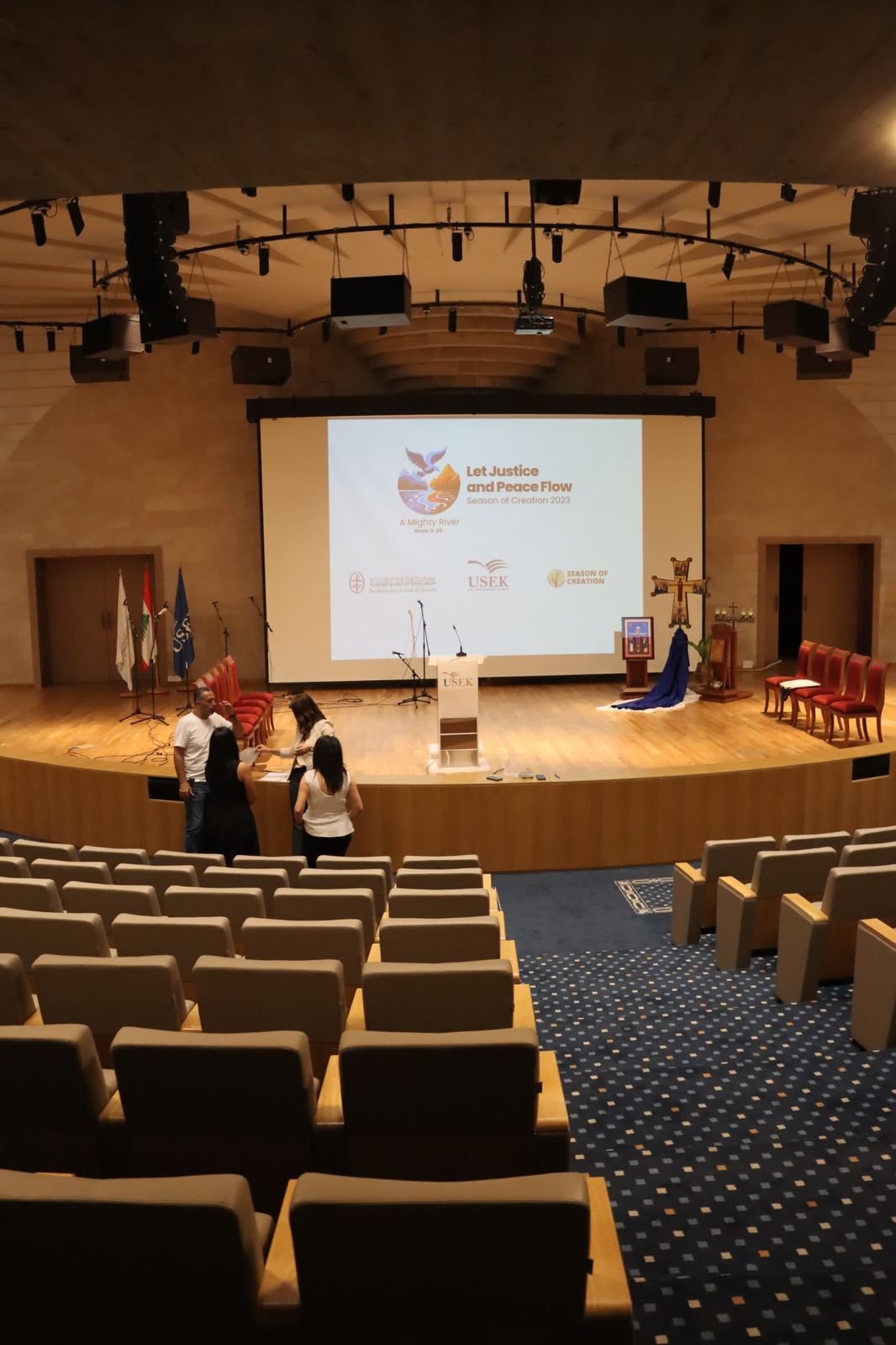MECC Concludes the “Season of Creation” in the East
With an Ecumenical Prayer Service at USEK - Lebanon
The Council Inaugurates in Cooperation with ATIME
The Symposium “Ecumenical Perspectives on Climate Change”
You can find a photo album below the text.
The Middle East Council of Churches (MECC) concluded the “Season of Creation” for this year with an Ecumenical Prayer Service under the title “Let Justice and Peace Flow”, on Wednesday 4 October 2023, hosted by the Holy Spirit University of Kaslik (USEK) - Lebanon.
Participants in the Prayer were Reverend Dr. Paul Haidostian, President of the Union of the Armenian Evangelical Churches in the Near East, President of Haigazian University in Lebanon, and MECC President for the Evangelical Family, Reverend Joseph Kassab, President of the Supreme Council of the Evangelical Community, His Eminence Metropolitan Anba Thomas representing His Holiness Pope Tawadros II, Pope of Alexandria and Patriarch of the See of Mark, His Eminence Bishop Paul Rouhana representing His Beatitude Patriarch Cardinal Mar Bechara Boutros Al-Rai, Maronite Patriarch of Antioch and all the East, His Eminence Bishop Elie Haddad representing His Beatitude Patriarch Youssef Al-Absi Greek Melkite Patriarch of Antioch and All the East, Father Movres Douanian representing His Beatitude Patriarch Raphaël Bedros XXI Minassian Catholicos of the Armenian Catholic Church of Cilicia and MECC President for the Catholic Family, Father Sarkis Aprahamian representing His Holiness Aram I Catholicos of the Armenian Church, Holy See of Cilicia, His Eminence Metropolitan Selwan Moussi, Bishop of the Greek Orthodox Archdiocese of Byblos, Batroun & Dependencies (Mount Lebanon), His Eminence Bishop Michel Kassarji, Head of the Chaldean Community in Lebanon, His Eminence Bishop Cesar Assayan, Head of the Latin Church in Lebanon, and His Eminence Bishop Thomas Reinholdt Rasmussen from Denmark.
During the Prayer, Reverend Dr. Paul Haidostian delivered a Homily in which he stresses the importance of preserving God’s creation and explained that “We may choose arrogantly to spoil the waters of the wells that are accessible, or rely on waters that are purchased by unjust economic practices. The same will be true about other natural resources too. Thus, instead of enjoying the gifts of the God-given nature like a forest, we may choose to build centers of luxury, or live lives based on accessory, even if they do not represent any need for quality and life, at the expense of God’s economy of nature and people. Eventually, it boils down to the following two questions: what are our minds and hearts thirsty for? And who will pay the long-term price of our lifestyle when we go wrong?”.
The Prayer also included various supplications as well as hymns recited by a group of students from the Armenian Church and the Near East School of Theology, students from the Orthodox Church and of Saint John of Damascus Theological Institute - University of Balamand, and students from the Maronite Church and the Pontifical College of Theology at the University of the Holy Spirit - Kaslik.
Following the Prayer, the Middle East Council of Churches, in cooperation with the Association of Theological Institutes in the Middle East (ATIME), inaugurated the symposium “Ecumenical Perspectives on Climate Change”, at the Holy Spirit University of Kaslik (USEK). Noting that its sessions will continue until Thursday 5 October 2023, at the Saint Joseph University (USJ) in Beirut. The symposium aims at raising awareness about several environmental topics from a Theological perspective, as it revolved around climate change, social justice, care for creatures and preserving the environment, with the participation of Church leaders, speakers and specialists in environmental and Theological fields from Lebanon, Egypt and European institutions.
The symposium began with a speech delivered by Father Dr. Talal Hachem, President of USEK, in which he emphasized the necessity of environmental awareness. He said “this conference will serve as an effective platform to enhance constructive debate, gain better understanding and establish strong cooperation for this urgent need to address the global challenge of climate change... The Holy Spirit University has - over the years - been actively committed to sustainability, and this is reflected through its rankings as one of the most sustainable universities in the region, as it promotes sustainable development goals, leaves a remarkable societal impact, and creates a culture based on caring for our planet and taking care of it.”
Then, Dr. Michel Abs, MECC Secretary General, delivered a speech in which he condemned human indifference towards the environment. He said “since we are in the process of addressing the issue of climate change, we must stop before the phenomenon of induced climate change, that is, what results from environmental projects undertaken by countries, either to secure the interests of their citizens, or to impose an unwanted siege on their neighbors. These projects are such as dams or canals, which have made the poison cook and eat away, and the magic of environmental projects is reflected on the people itself, the magic of earthquakes, landslides, and other environmental disasters.”
Afterwards, Archimandrite Dr. Jack Khalil, President of ATIME, and Dean of the Saint John of Damascus Institute of Theology at the Balamand’s University in Lebanon, delivered a speech in which he indicated that ATIME aspires to introduce environmental perspectives into the curricula of theological Institutes and Faculties in the Middle East. He said that “ATIME adopted for the year 2023 “the topic of “Creation” to study and delve into related pressing issues... Today the Association is cooperating with the Middle East Council of Churches to stimulate thinking and reflection on the way we deal with the environment and the balanced ecosystem as God has established it; primarily due to our spiritual benefits, followed by the environmental welfare necessary for the continuation of life and the abundance of God’s blessings on humanity.”
The symposium was introduced by Reverend Dr. Rima Nasrallah, Professor of Practical Theology at Near East School of Theology in Lebanon. In included a Keynote speech delivered by Reverend Dr. Dave Bookless, Director of Theology for “A Rocha International” organization, under the title “Climate Change: Biblical and Theological Perspectives”. Reverend Bookless talked about the dangers of human-caused climate change, alongside global biodiversity loss and growing inequality within societies, together form an existential threat to human thriving and potentially to the continued survival of human societies. He mentioned that “as Christians we are called to turn to God in lament, repentance, reflection, and action. We draw on the resources of our tradition, particularly the biblical narratives of God’s purposes in sustaining and redeeming a good world…” He also talked about core biblical principles, in order to respond with an act of love to the call of the creation that is suffering.
In the closing session, Father Dr. Antoine Al Ahmar, Director of the MECC Theological and Ecumenical Department presented the Middle East Churches’ Statement that will be addressed to the conference of parties COP28 in Dubai. The statement includes many segments related to global long-term commitment, just climate financing, just management of resources, Church Commitment, and Church and Government cooperation…
The first day of the symposium ended with an Eco-Exhibition that included various initiatives and activities in the environmental field and creation care, which are implemented by many organizations and youth movements. Then, the attendees gathered in y a reception.

